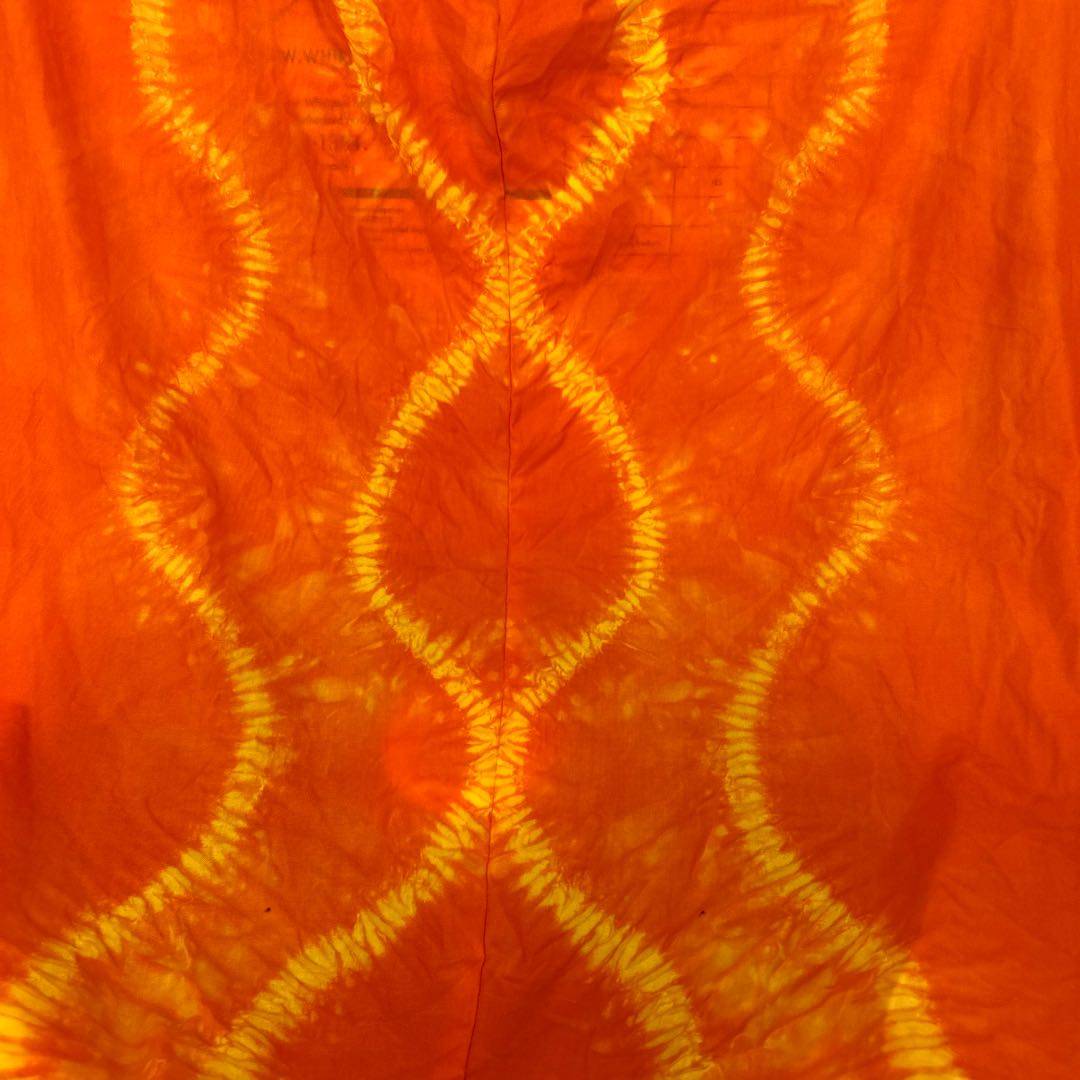
I learned so much about protest movements that happened in my lifetime that I was unaware of.

I learned so much about protest movements that happened in my lifetime that I was unaware of.
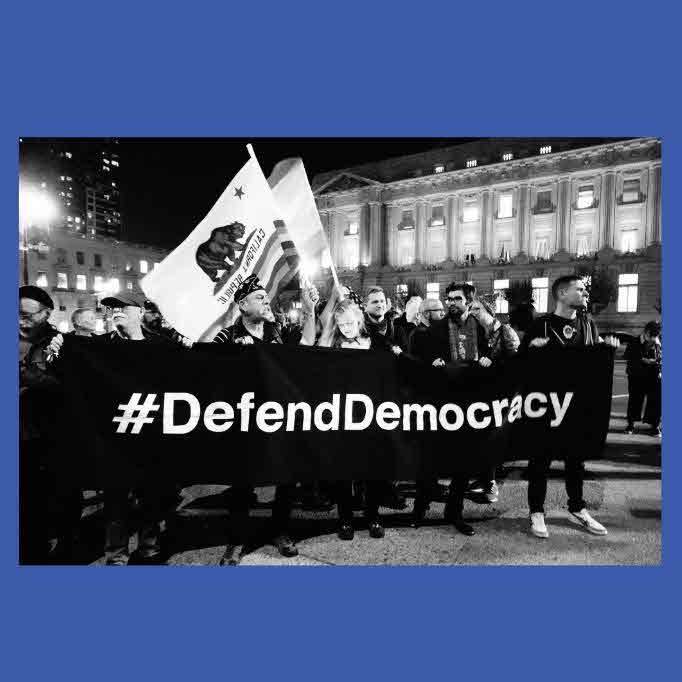
FYI
I'm not wishing to ruffle feathers re politics, BUT I've seen a lot of people struggling with current events on here.
Rebecca Solnit has launched a new website to post essays, content, and information regarding the defence of democracy. Remember #KnowledgeisPower
https://meditations-in-an-emergency.ghost.io/welcome-to-meditations-in-an-emerge...
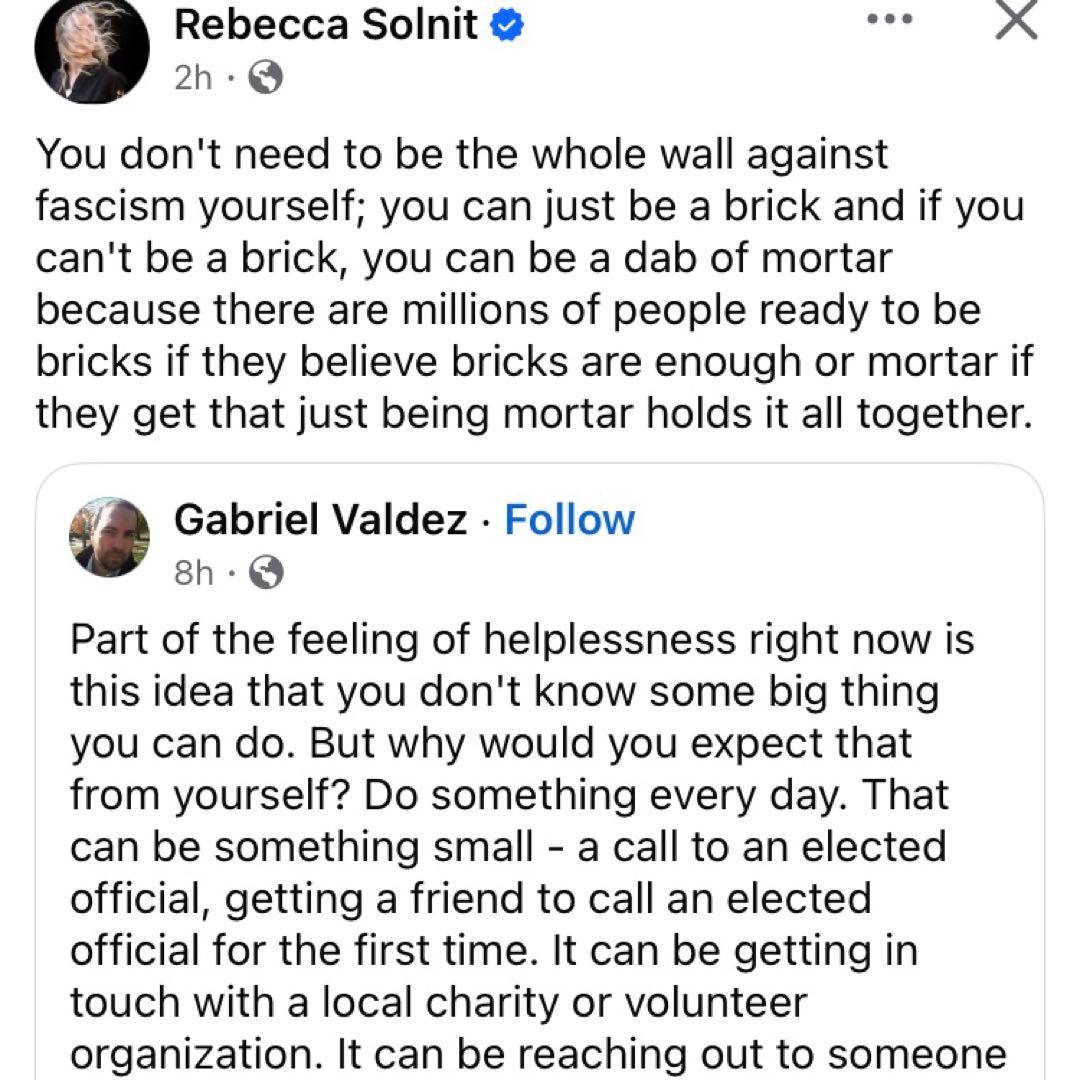
Not from the tagged, but on Solnit‘s facebook page today:
“You don‘t need to be the whole wall against fascism yourself; you can just be a brick and if you can‘t be a brick, you can be a dab of mortar…”
@kspenmoll and all of us who need it right now.
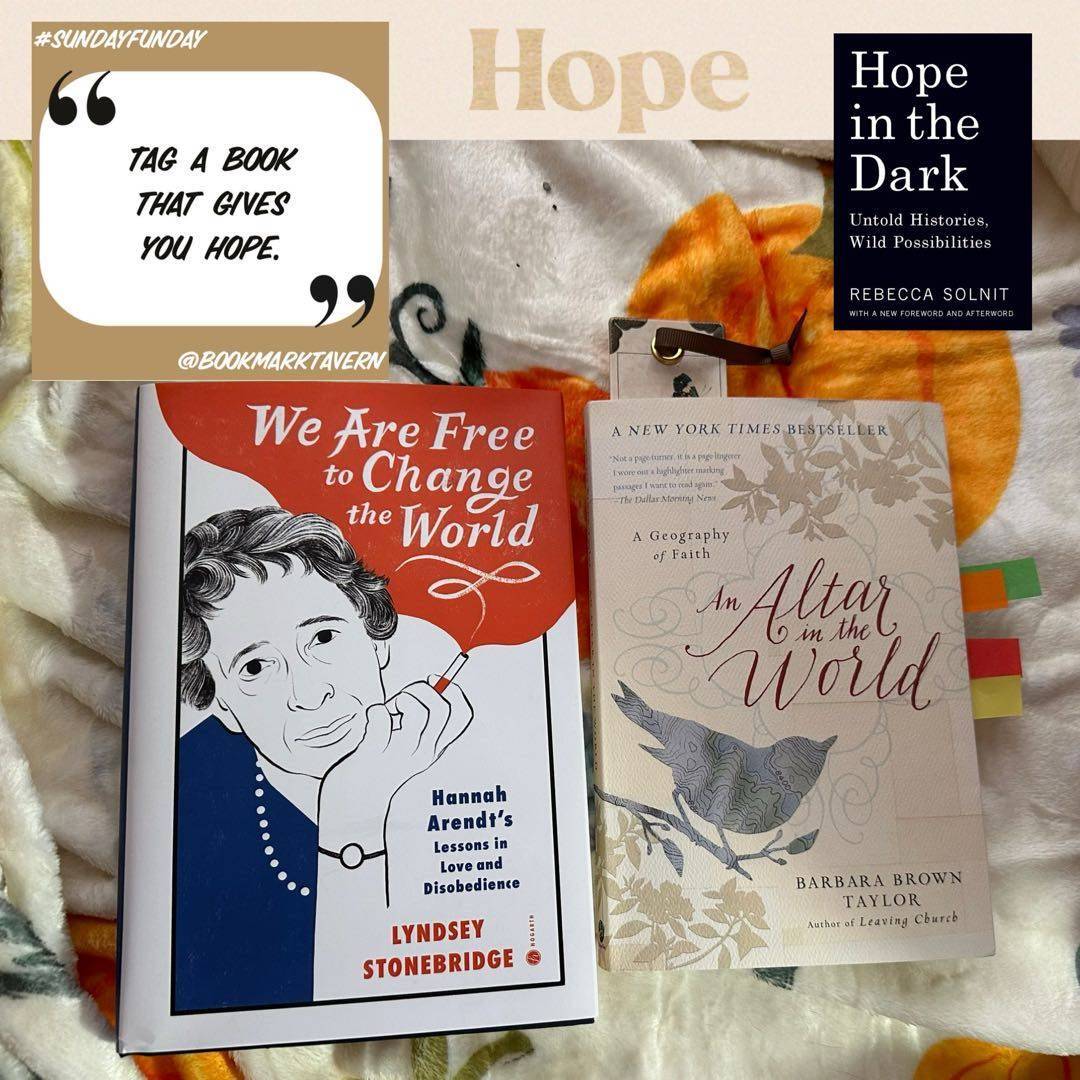
Currently i am reading An Altar in the World, which I started before the election. I read Hope in the Dark in 2016 & now plan to reread. Arendt‘s book is new to me.
Members of #adventuresinphilosophy & anyone else interested in changing path‘s & reading Arendt together? #NFNovember
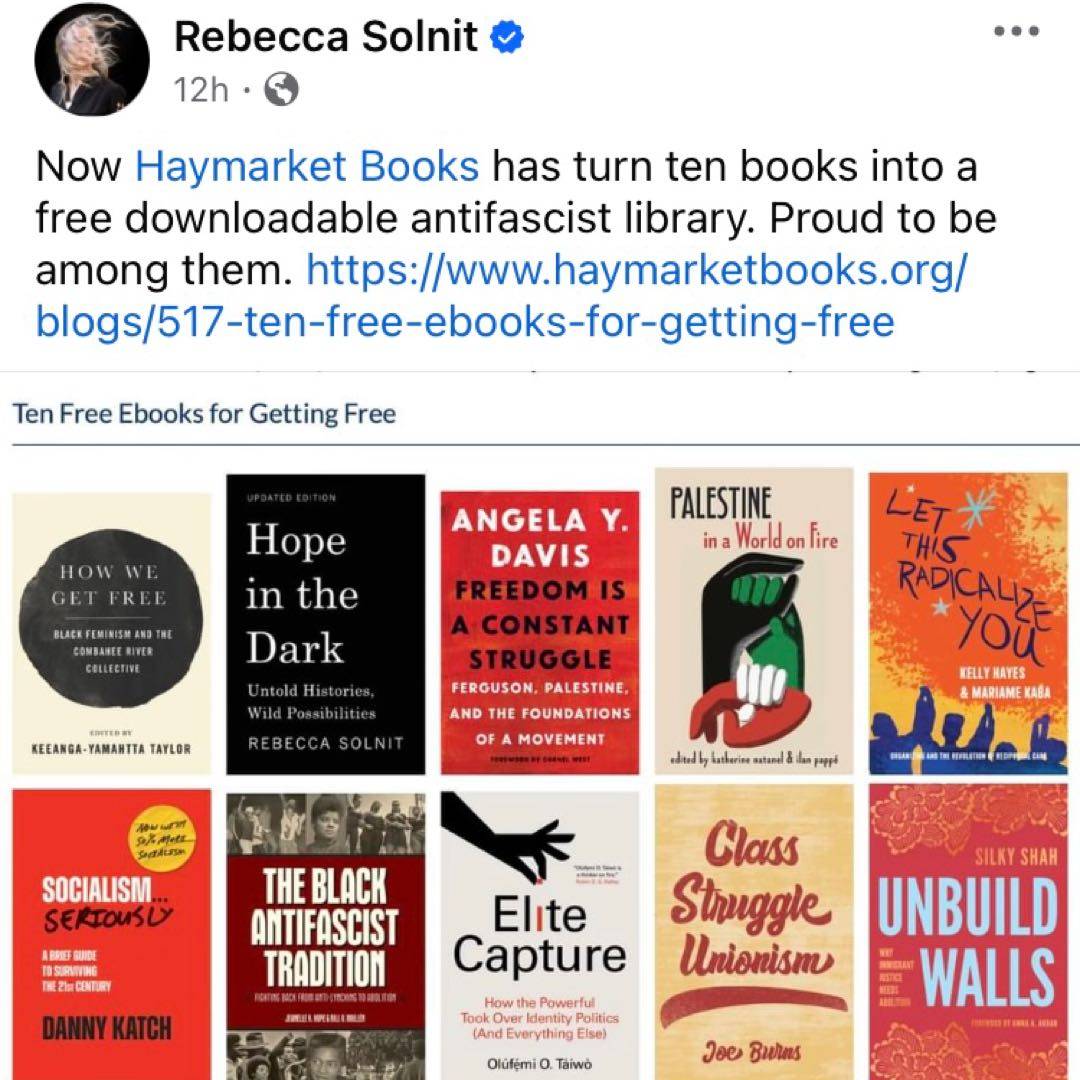
Haymarket Books is offering a library of ten anti-fascist books for free for a limited time (one week, I think). Run, don‘t walk.
https://www.haymarketbooks.org/blogs/517-ten-free-ebooks-for-getting-free
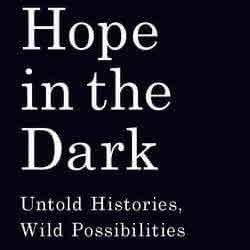
Rebecca Solnit and her publishers have released Hope in the Dark as a free download for 1 week.
https://www.haymarketbooks.org/books/791-hope-in-the-dark?fbclid=IwY2xjawGbdBBle...
https://www.facebook.com/share/p/QmaP9xpNHLeDiExF/
Grab a copy, you won't regret it.
This article is not from the tagged book, but it deals in the same currency. Solnit writes about the loneliness epidemic, the rising wave of authoritarianism, and most importantly, how we can feel better about our lives. It‘s a quick but important read. https://www.theguardian.com/commentisfree/article/2024/jun/04/trump-covid-climat...
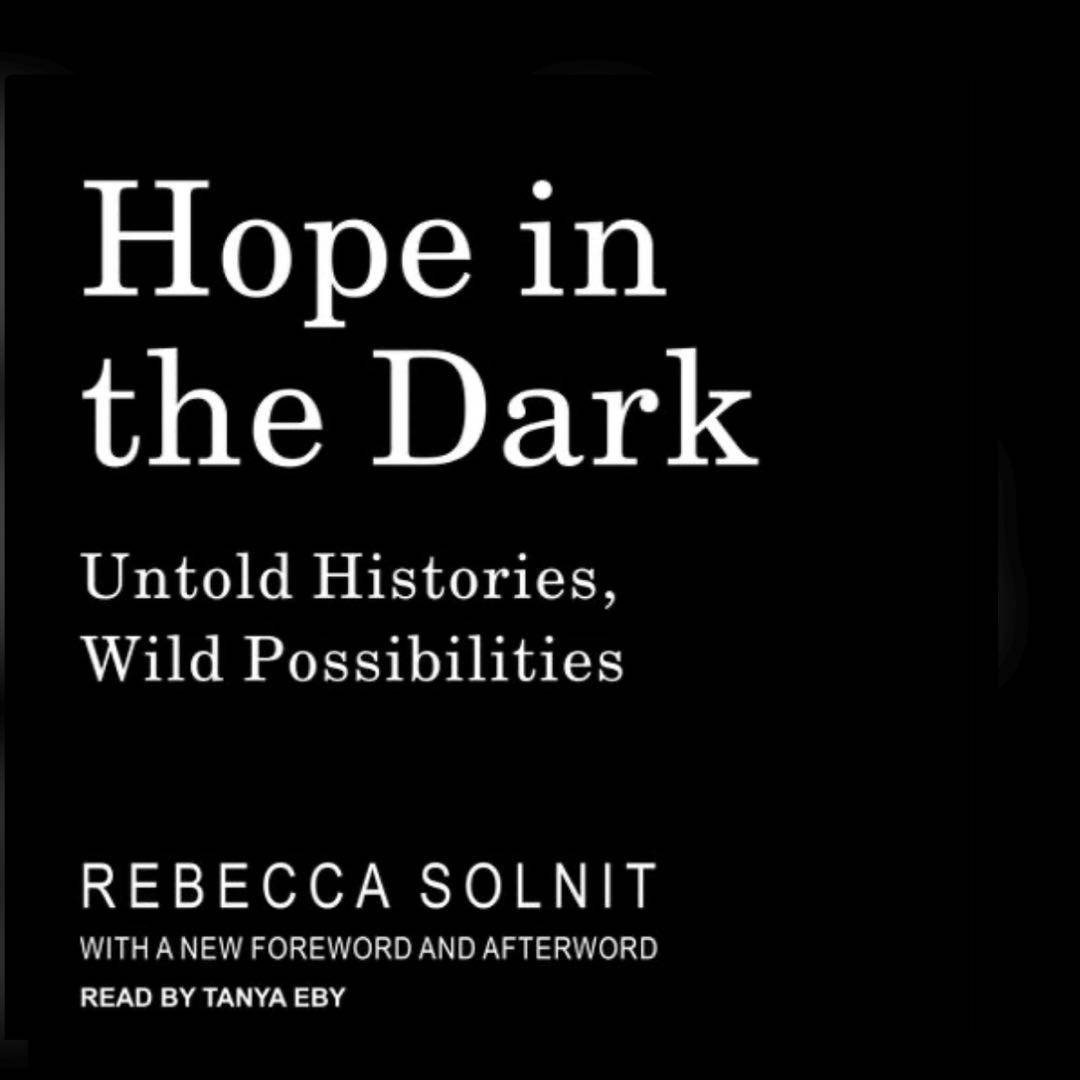
Originally published in 2003, the edition I listened to was 2017. All of the topics are still relevant and of importance, however the discussion around them has changed. Much of the discussion/essay topic was the war in Iraq and the time between 9/11 and the invasion of Iraq.
All of the essays were about finding that bright spot, that moment even if it was a failure. Everyone could use a bit of that.
3.8 ⭐️ only because it‘s a little dated.
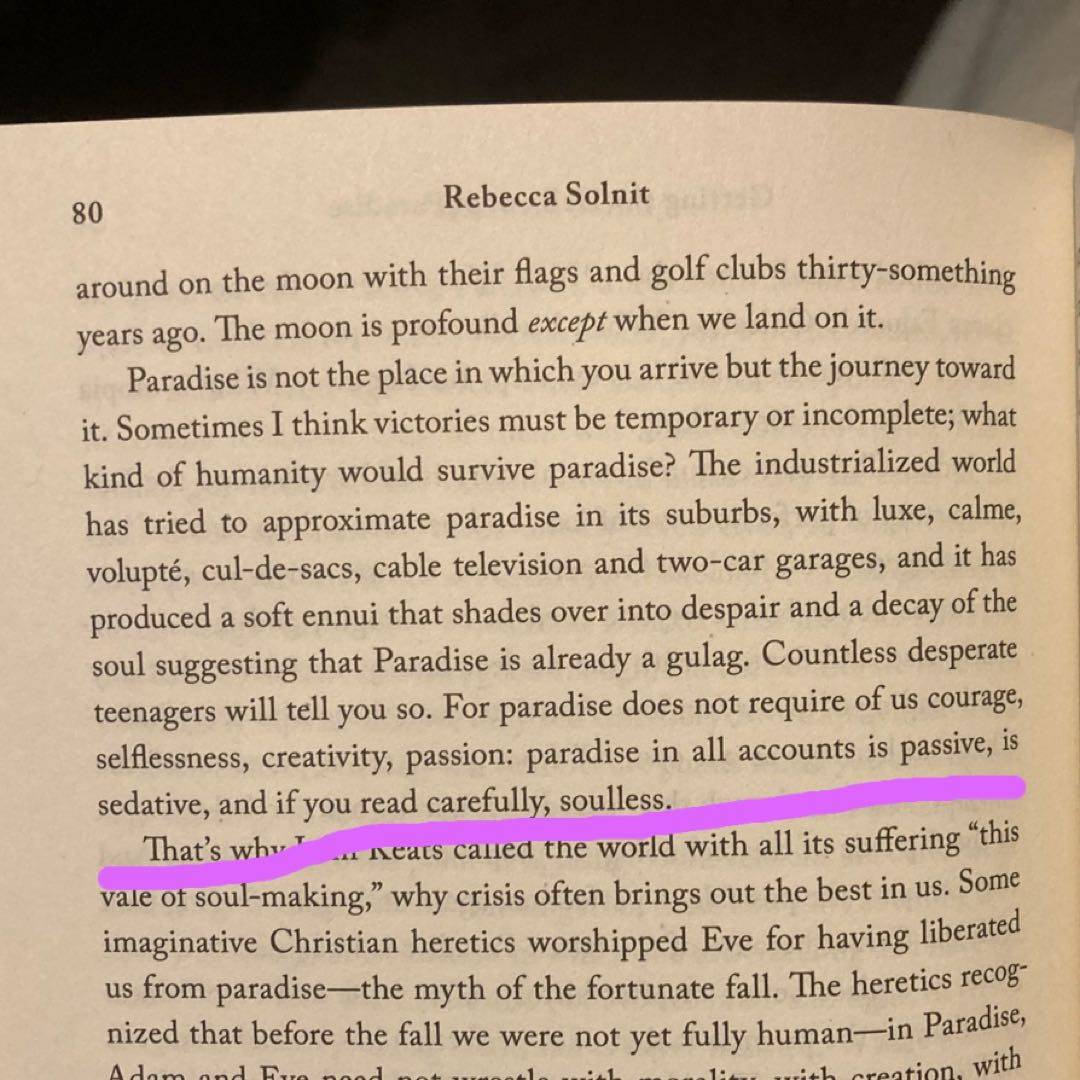
“…Paradise is already a gulag…For paradise does not require of us courage, selflessness, creativity, passion: paradise in all accounts is passive, is sedative, and if you read carefully, soulless.”
Another connection to Hägglund and #DeadPhilosophersSociety
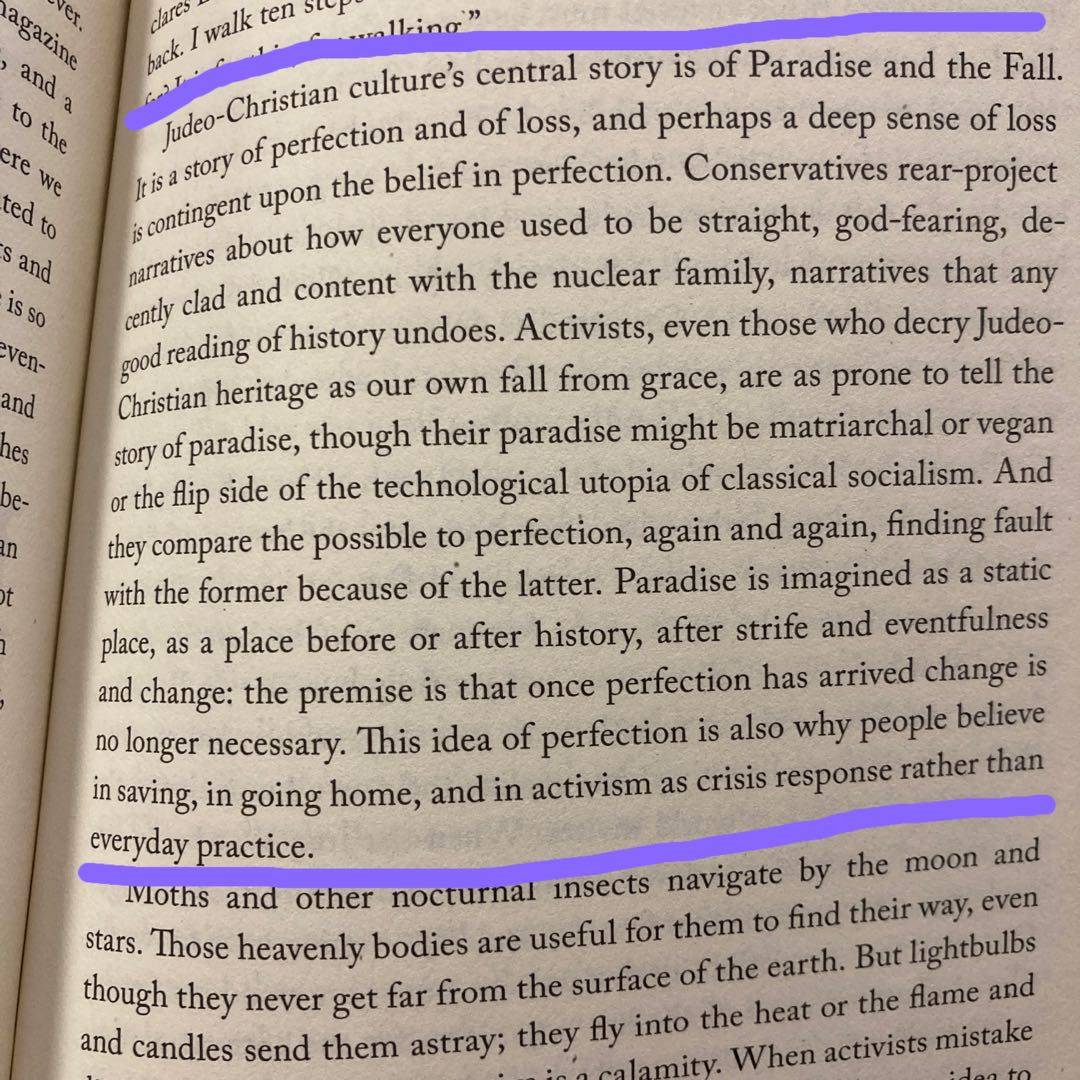
This bit reminds me of Hägglund‘s This Life, questioning the idea of eternity. “Paradise is imagined as a static place, as a place before or after history, after strife and eventfulness and change…”
#DeadPhilosophersSociety
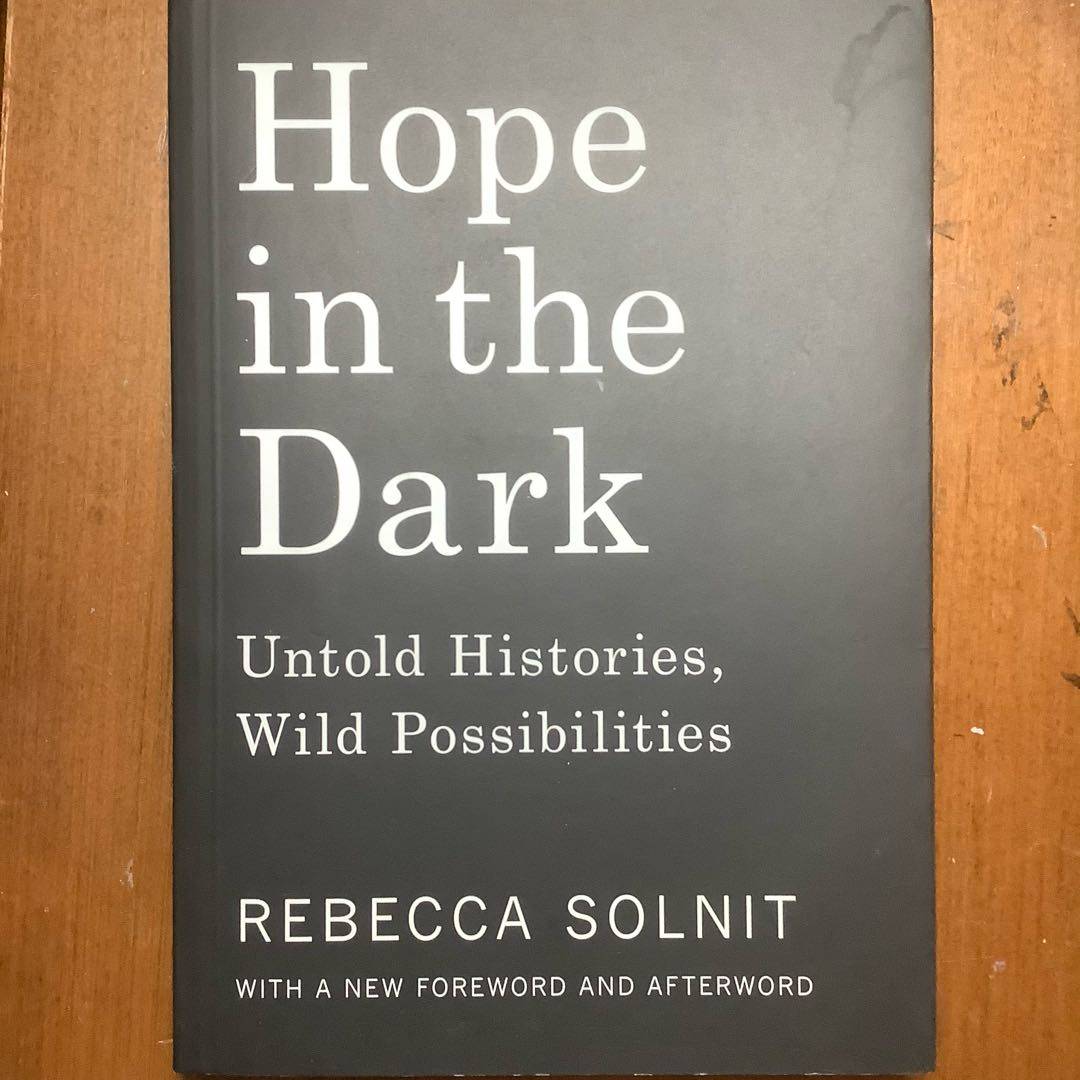
#CuriousCovers Day 3- I really enjoyed his #BlackandWhite covered book by Rebecca Solnit when I read it a few years ago. 🖤🤍🖤🤍
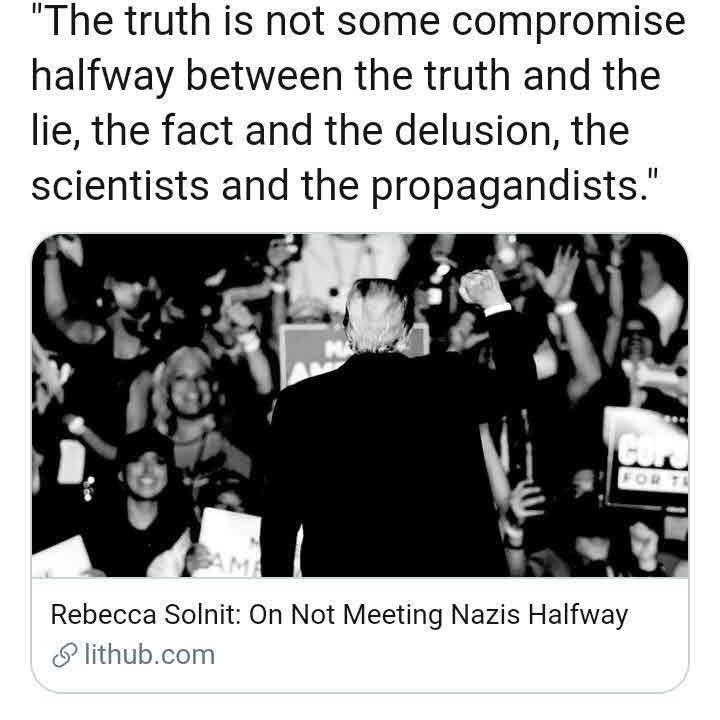
“Appeasement didn‘t work in the 1930s and it won‘t work now. That doesn‘t mean that people have to be angry or hate back or hostile, but it does mean they have to stand on principle and defend what‘s under attack. There are situations in which there is no common ground worth standing on, let alone hiking over to.“
I have a feeling I'll be reading this Solnit piece many times over the following couple of months. Gave voice to a lot of my feelings
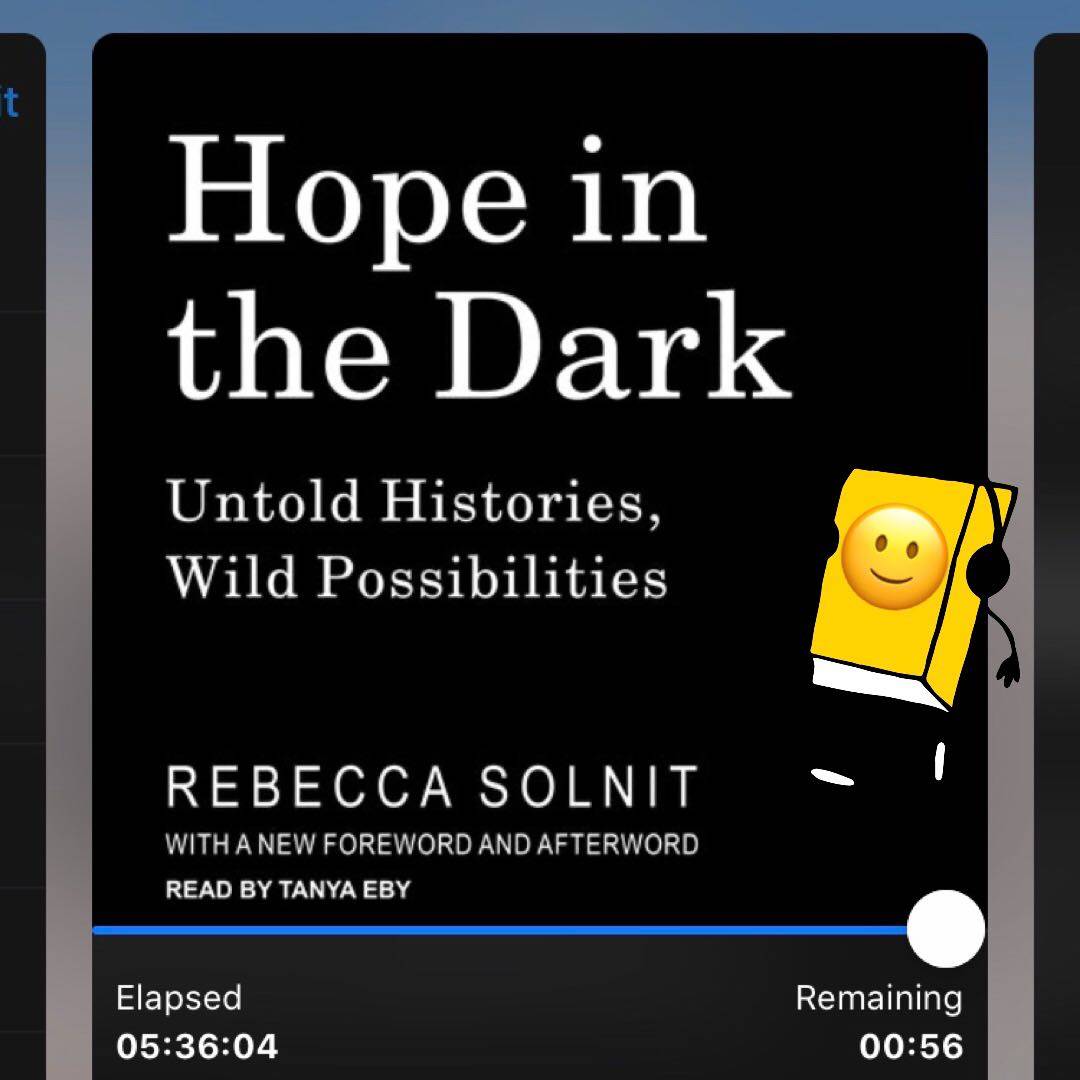
Originally written during the George W Bush administration, this sometimes felt dated, even with a new foreword & afterword. Still, the underlying hopeful message about celebrating progress, even when more remains to be done, is a good one. Cheered me up. But the #audiobook would be better with a different narrator: Tanya Eby‘s voice is too glib. Also, she could have checked words she didn‘t know, like “sockee” salmon and “Al-bear-ta” (Alberta).
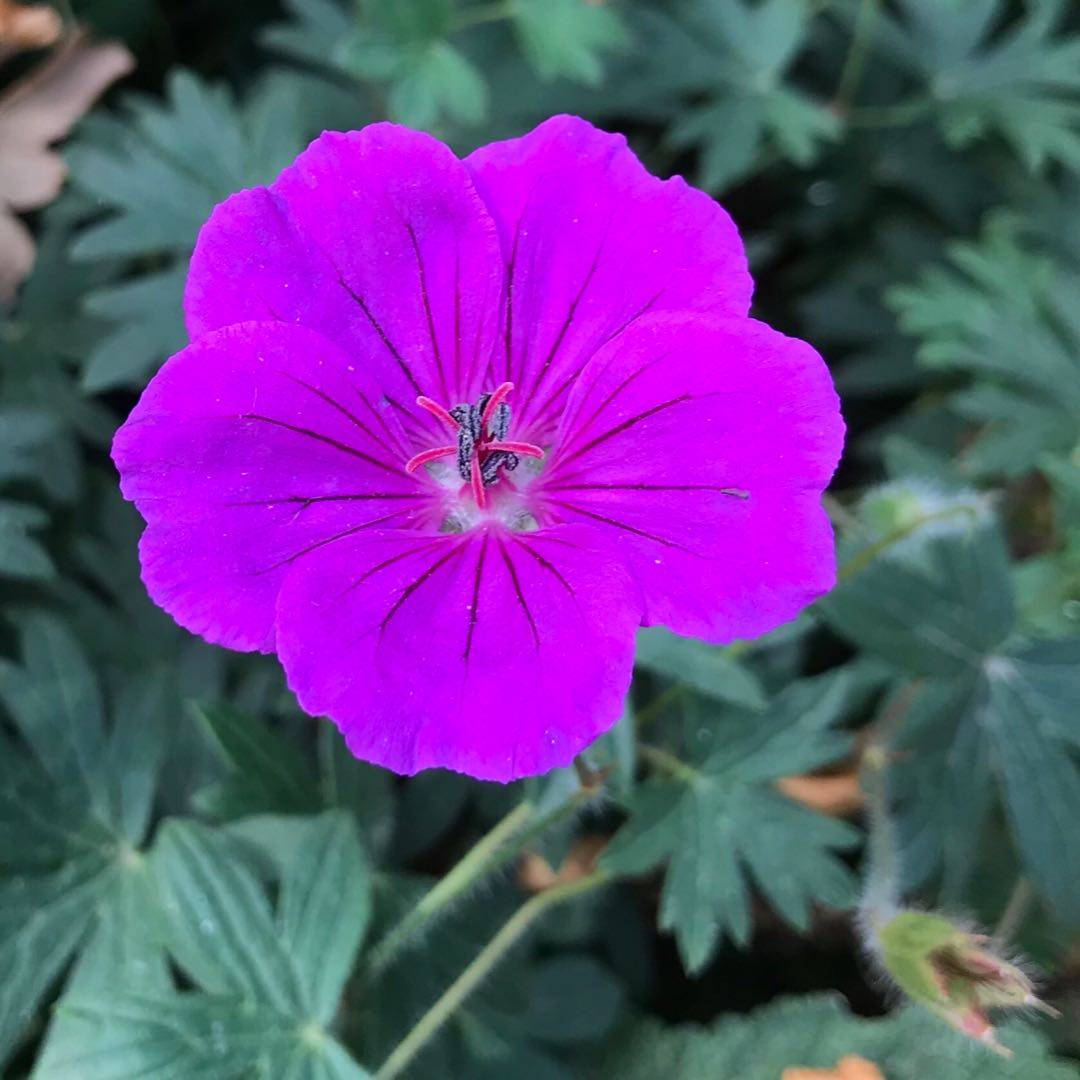
We don‘t know what is going to happen, or how or when, and that very uncertainty is the space of hope.
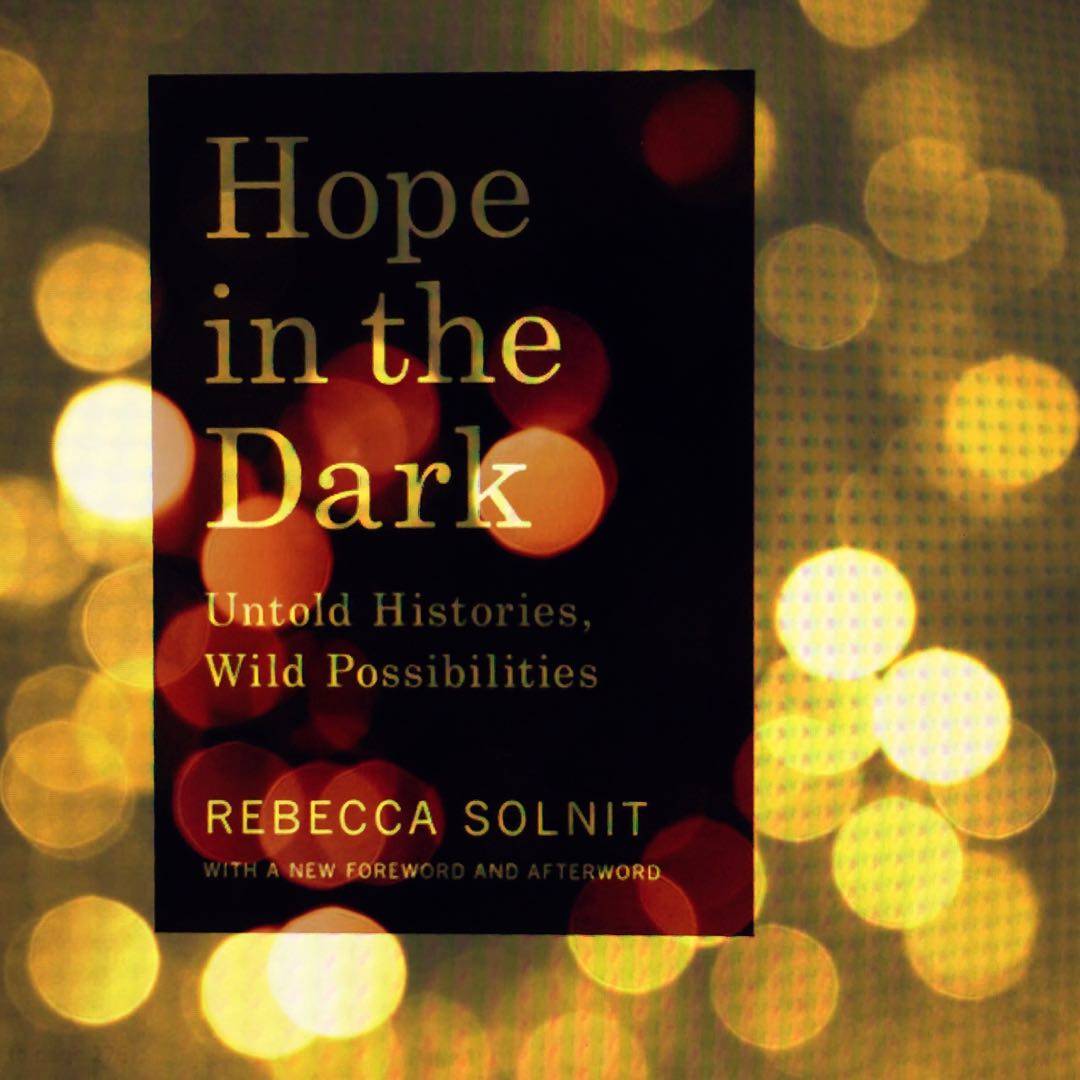
“Hope calls for action; action is impossible without hope.”
A clarion call for the need not to give into despair and a pointed critique of the perfectionist thinking that the left often engages (if this candidate/legislation isn‘t perfect, then it is a failure). Instead, Solnit looks at history both long and recent to show how we have the power to make change for the better, but that it is often a long process that involves work and compromises.
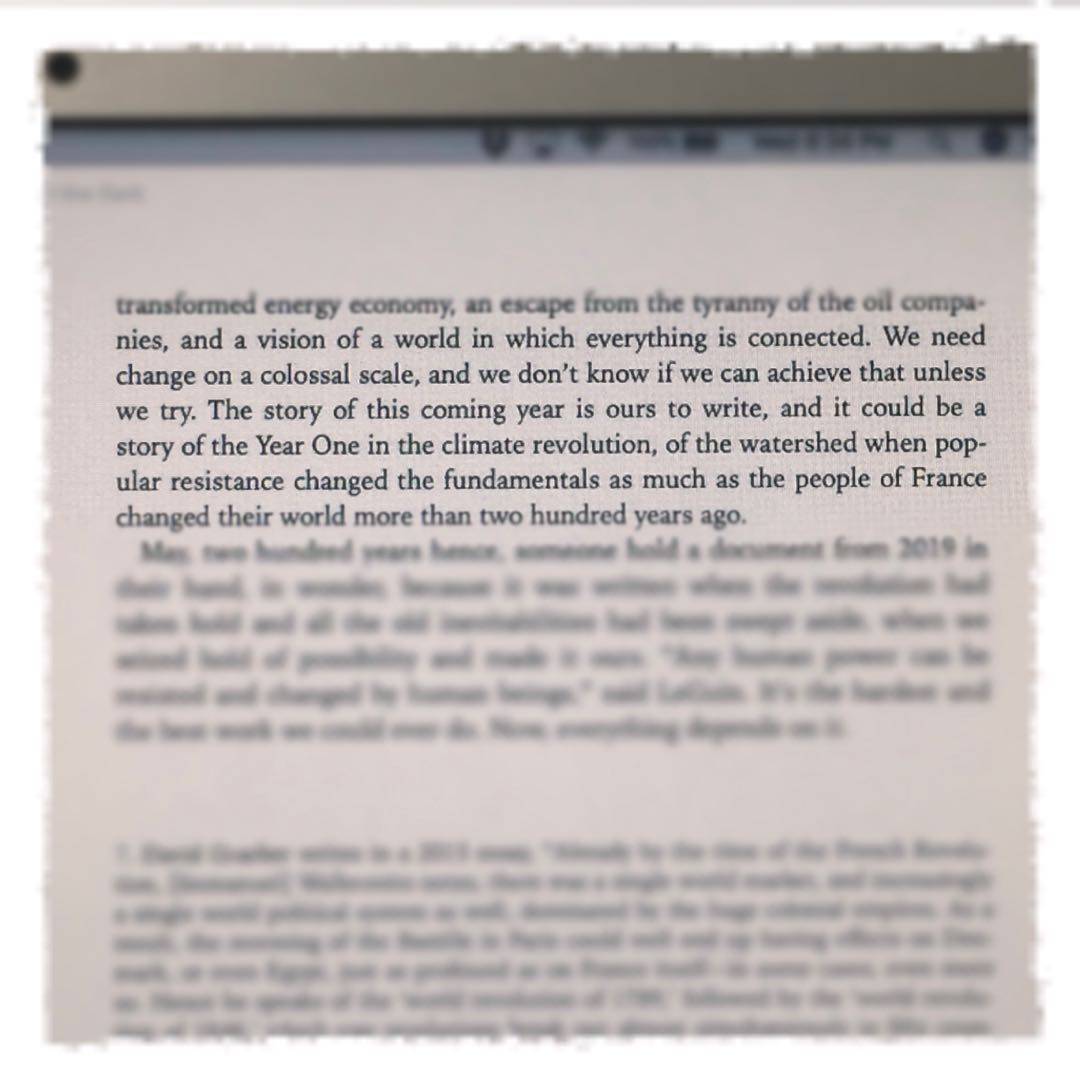
“We need change on a colossal scale, and we don‘t know if we can achieve that unless we try. The story of this coming year is ours to write, and it could be a story of the Year One in the climate revolution, of the watershed when popular resistance changed the fundamentals as much as the people of France changed their world more than two hundred years ago.”
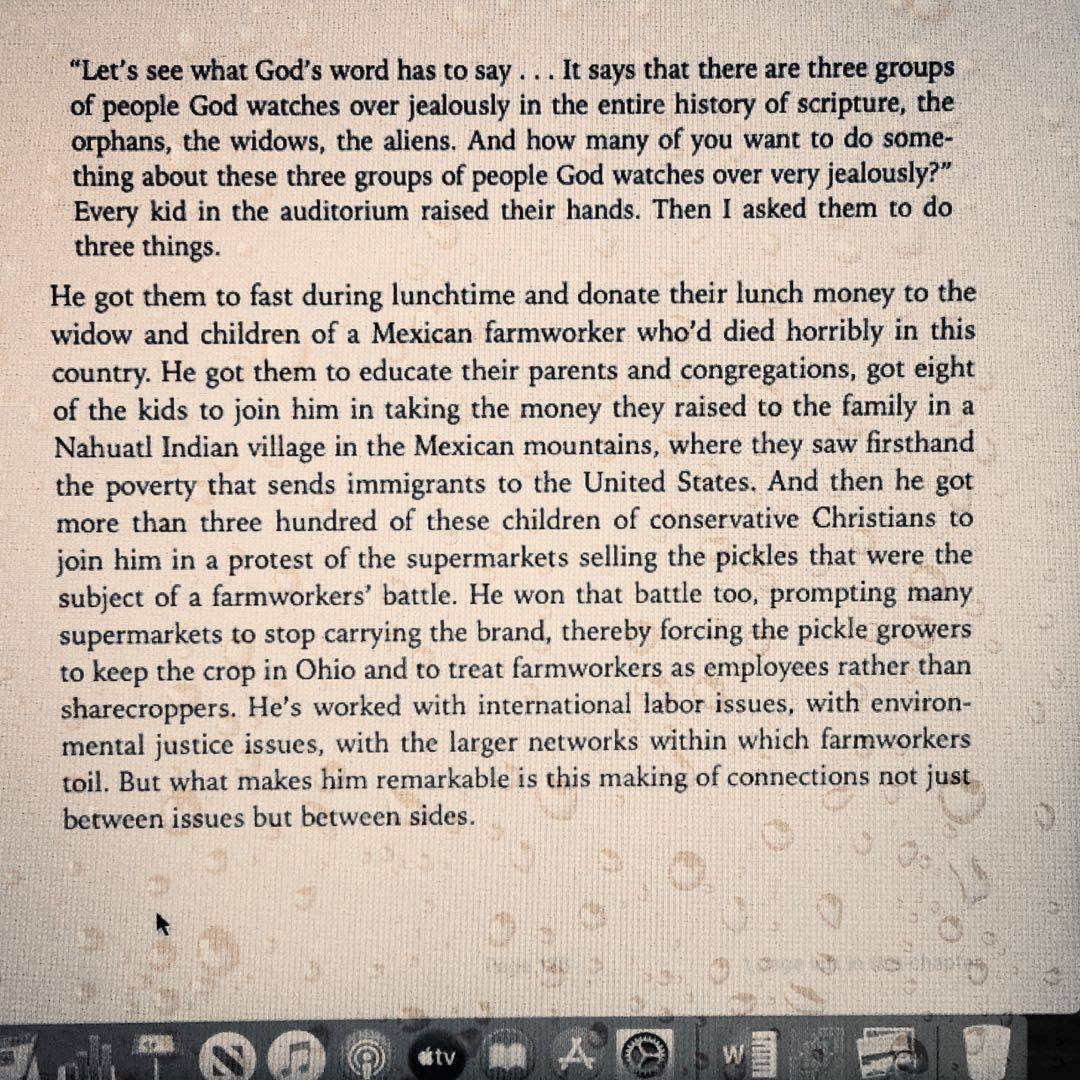
“He got them to fast during lunchtime and donate their lunch money to the widow and children of a Mexican farmworker who‘d died horribly in this country. He got them to educate their parents and congregations, got eight of the kids to join him in taking the money they raised to the family in a Nahuatl Indian village in the Mexican mountains, where they saw firsthand the poverty that sends immigrants to the United States.”
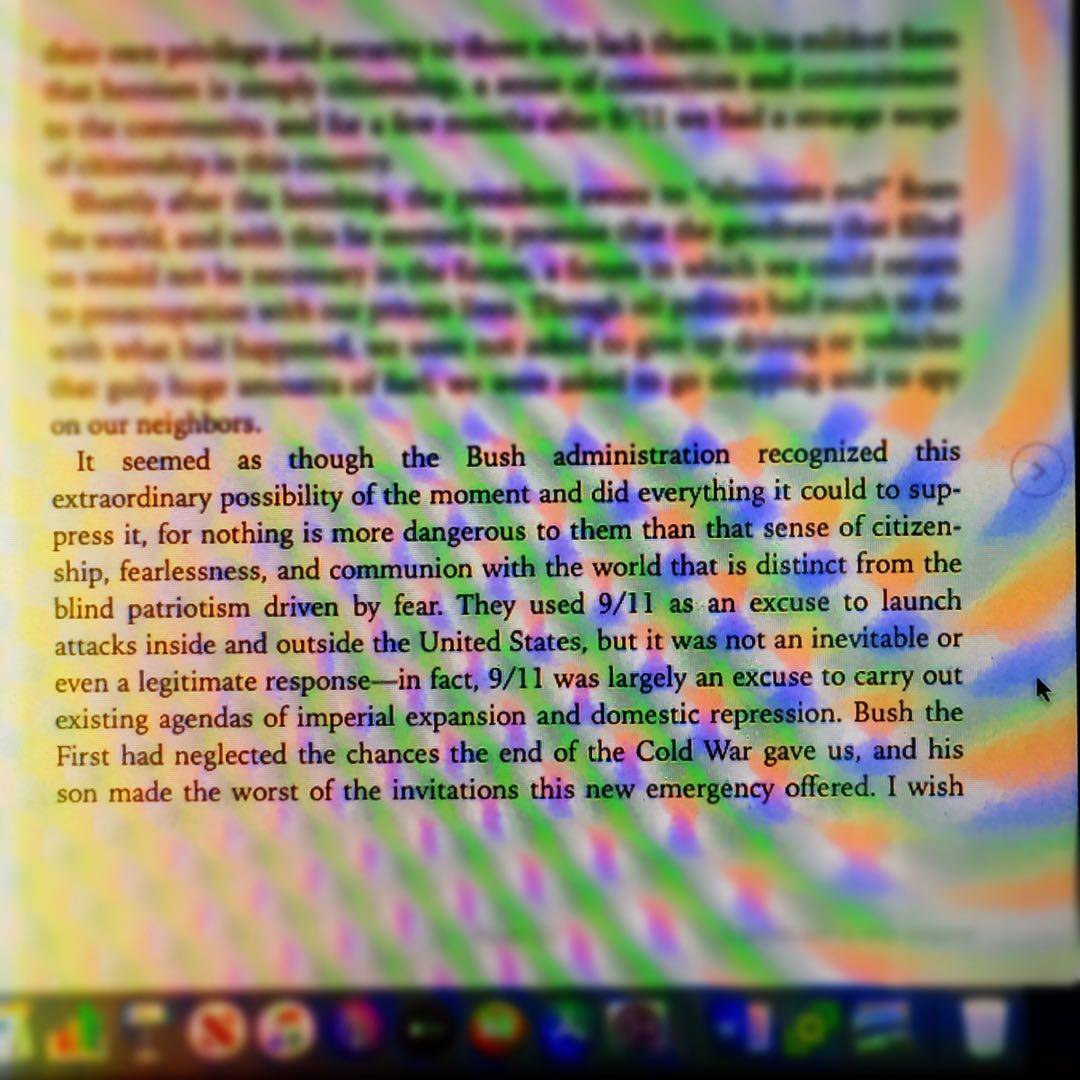
“It seemed as though the Bush administration recognized this extraordinary possibility of the moment and did everything it could to suppress it, for nothing is more dangerous to them than that sense of citizenship, fearlessness, and communion with the world that is distinct from the blind patriotism driven by fear. They used 9/11 as an excuse to launch attacks inside and outside the United States...”
#vote
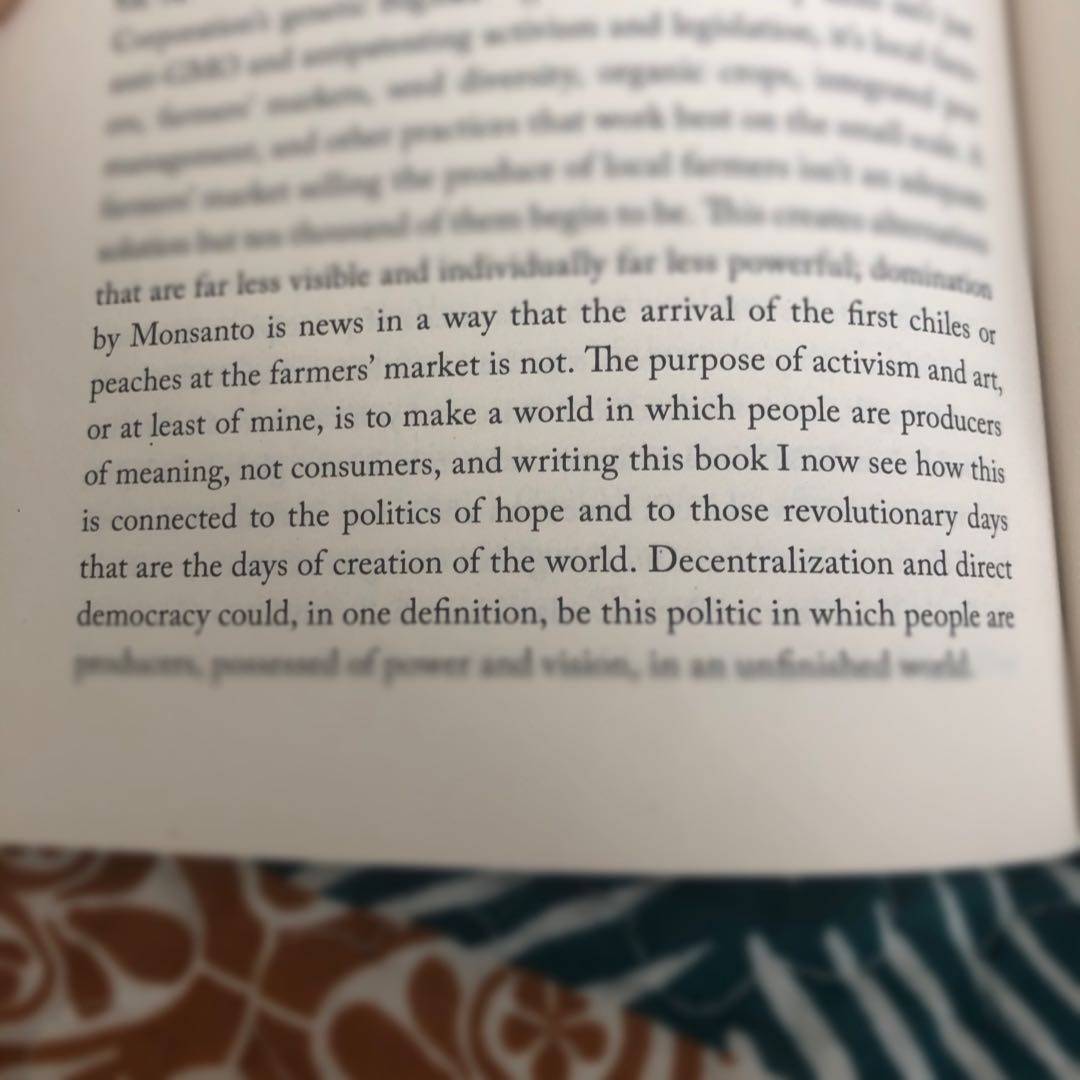
I started read this book about 4 yrs ago and although I didn‘t finish it, the chapters I did read always helped put things in perspective. It seemed like a good time to pick it up again.
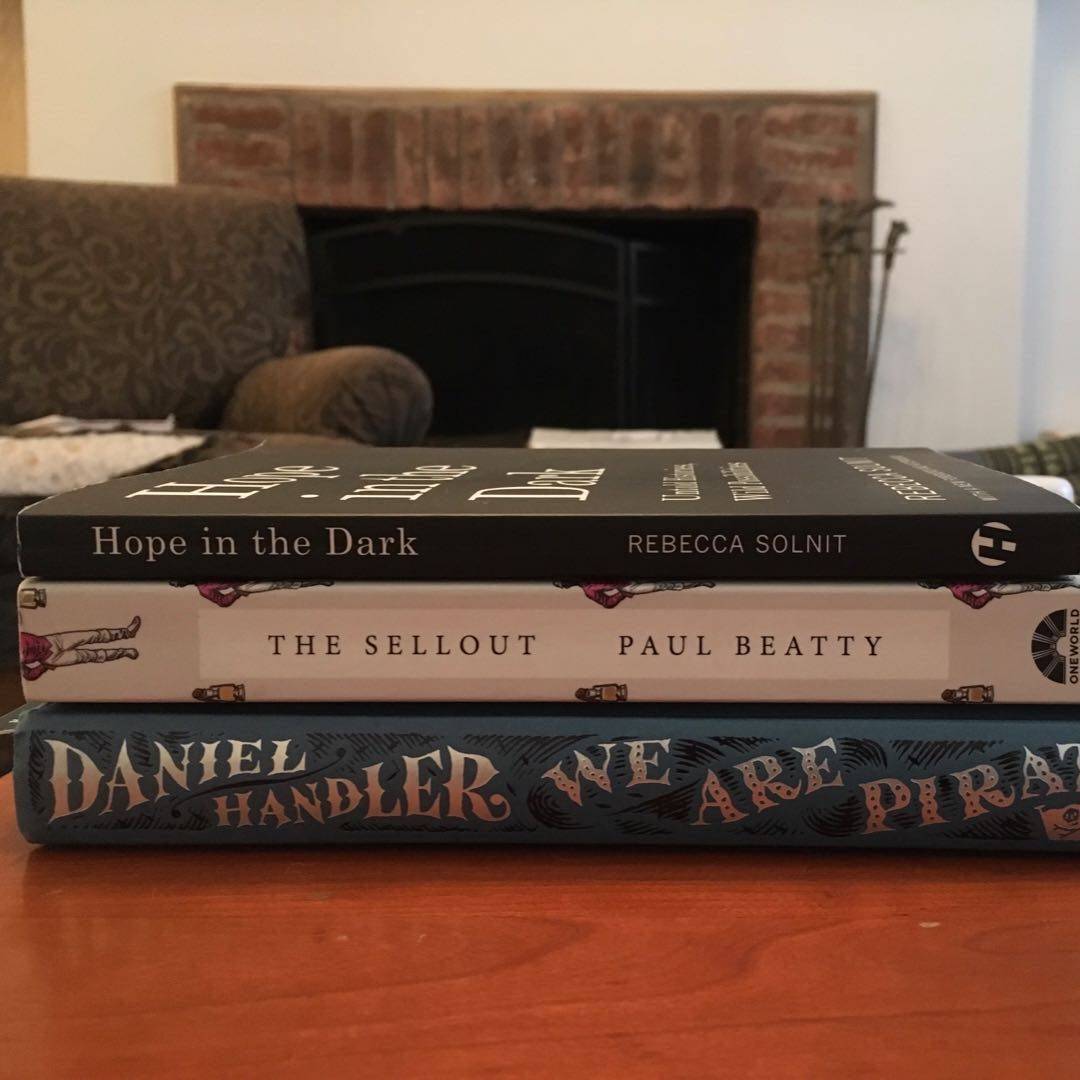
What am I to read?
I‘m having severe reader‘s block.
Any suggestions welcome.
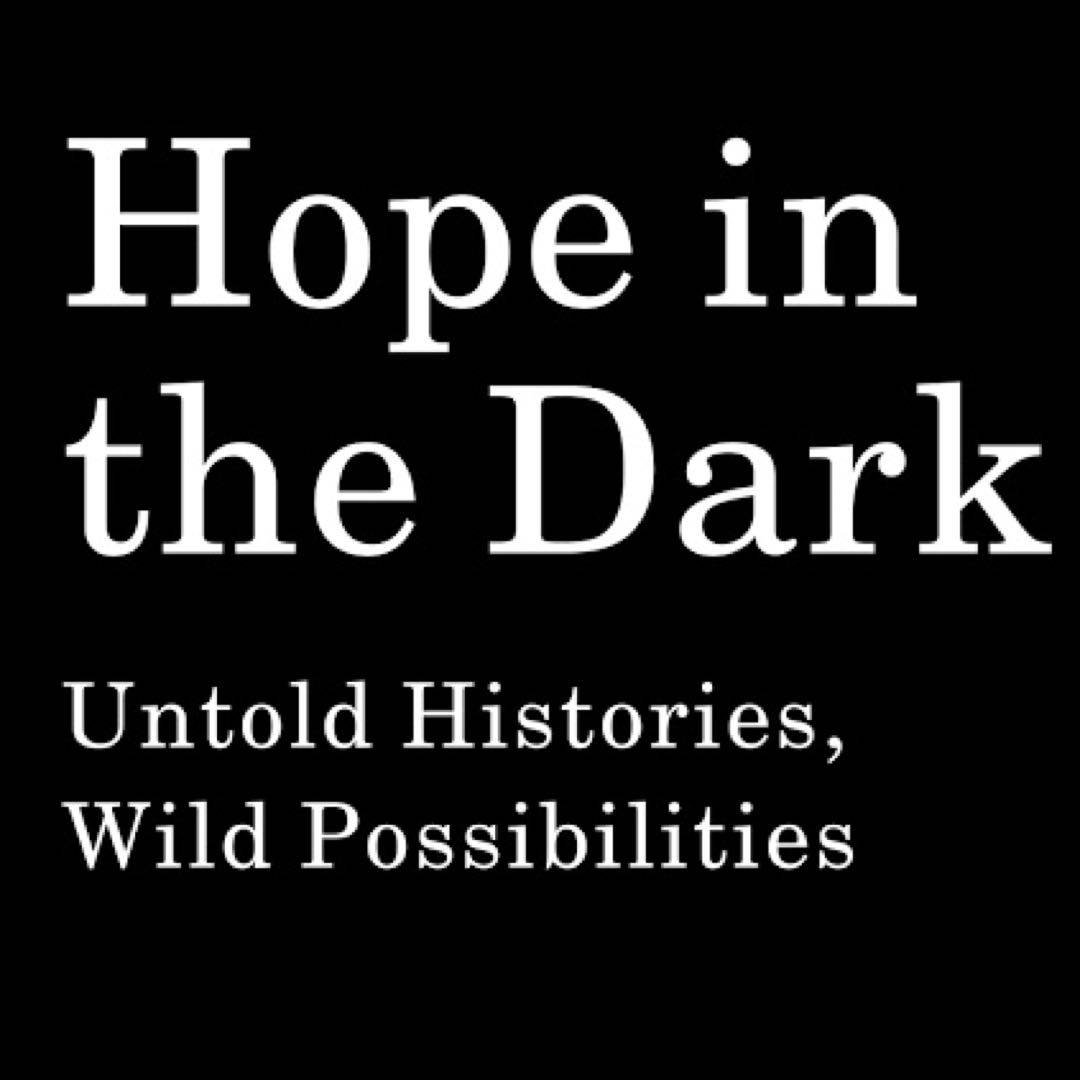
“The world is always being made and is never finished.” Read this book to believe that a better world is possible and that the work that is done towards achieving it is never wasted.
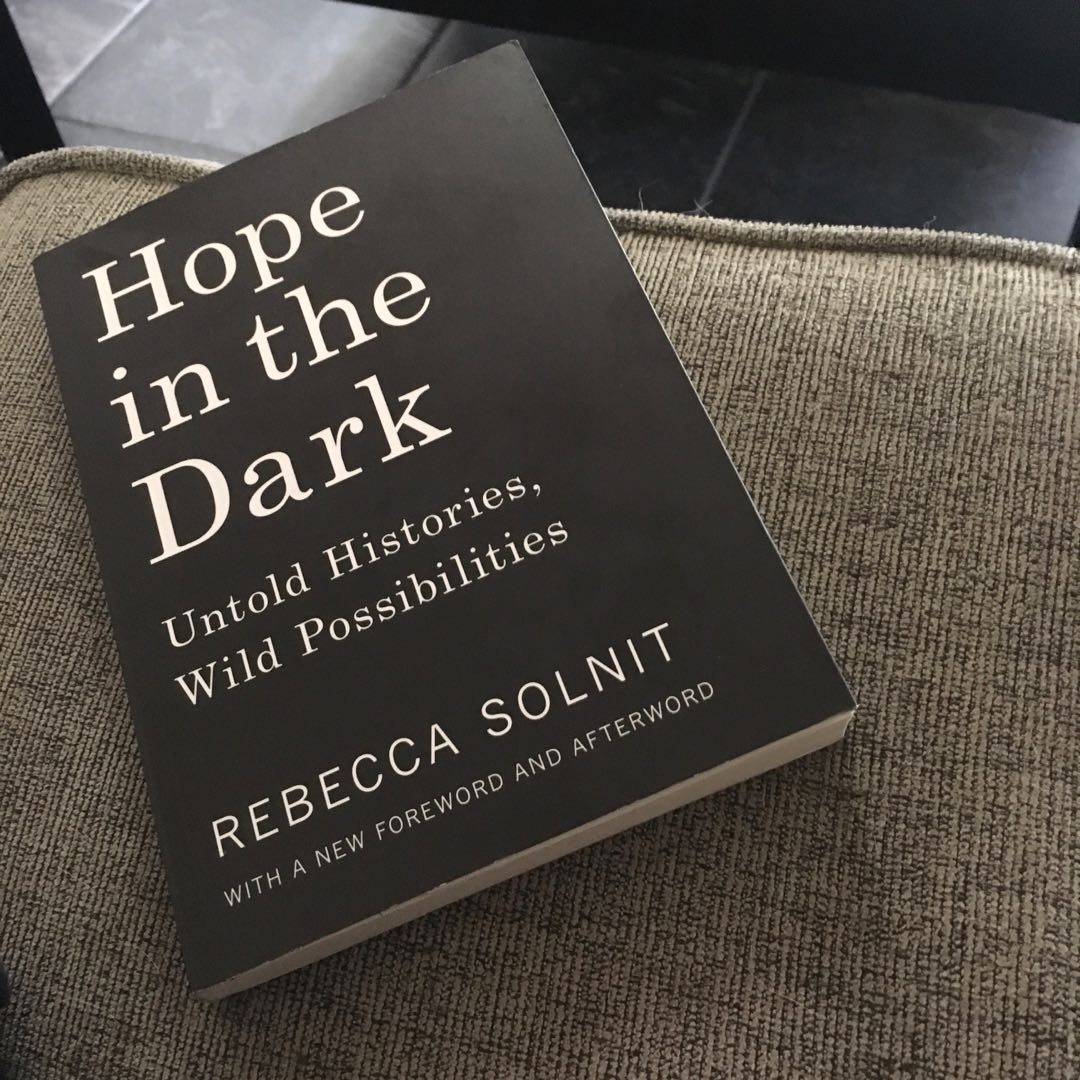
For someone feeling acutely hopeless these days, this was a tough read at times. The ending chapters, though, provide significant light at the end of the tunnel. Solnit makes the case for hope, even or especially in troubled times. She encourages the notion that two conflicting things can coexist. Hope does not mean it‘s all sunshine and roses, but it‘s also not all darkness and terror. Since either view discourages action, let‘s see it both ways.
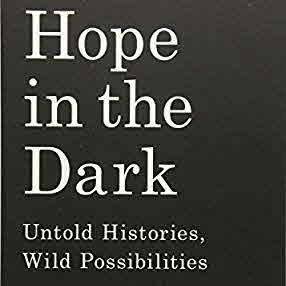
Solnit's first children's book Cinderella Liberator released today, but I'm a little late to her party, this one being my first. She put her finger on the problem with casual political discourse among those of us on the left: cynical grumbling without action. I'm 100% guilty of the same, and this challenged that instinct. I'm not someone who easily joins causes but I'd like to change: this is less of a manual for doing so than a helpful spark.
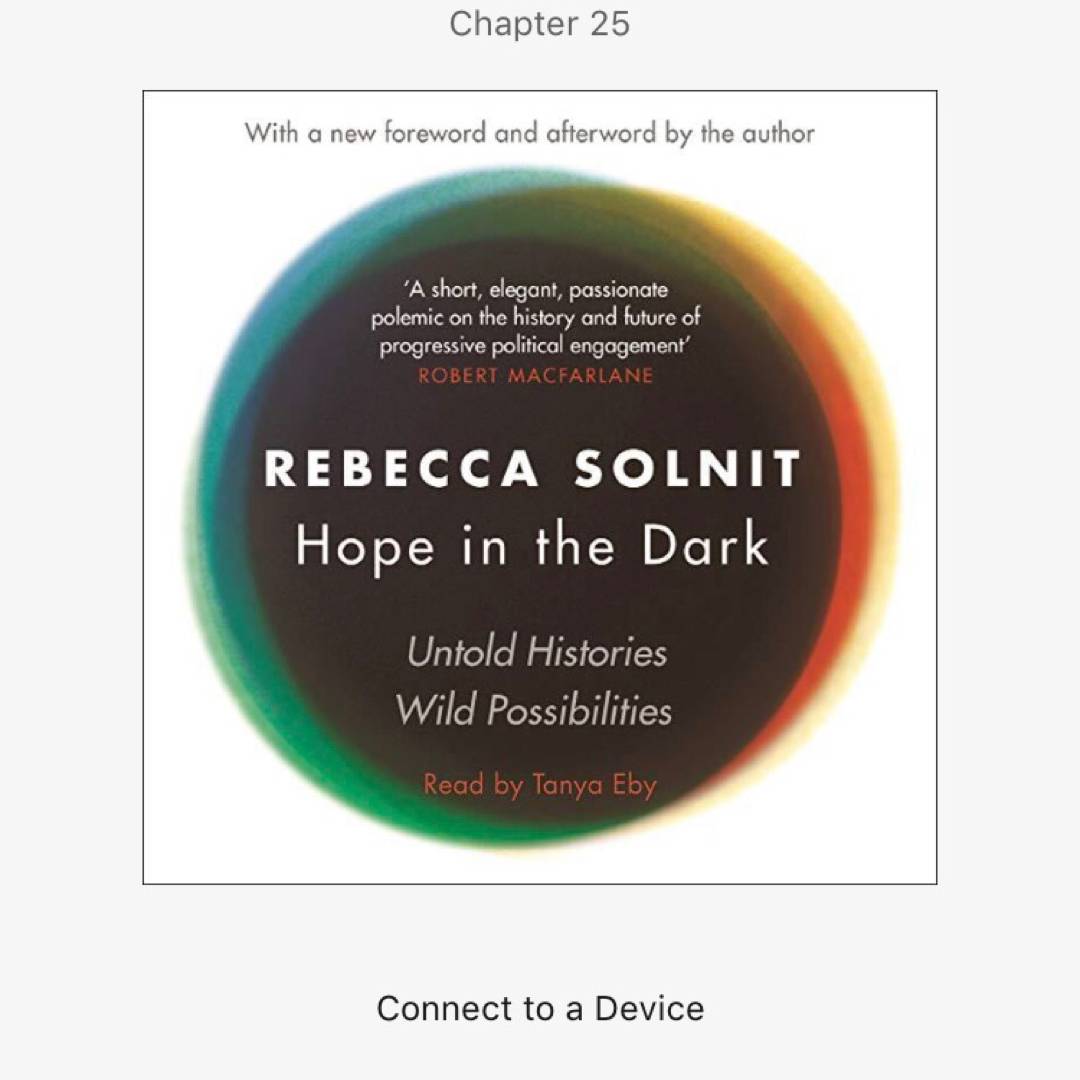
This was everything I needed to read right now! I really recommend to anyone feeling miserable or defeated about the state of politics (my government announced a no confidence vote in Theresa May today and idk if I‘m excited or terrified ✨✨✨). Rebecca Solnit has an amazing way of making you feel like anything is still possible and nothing is a lost cause
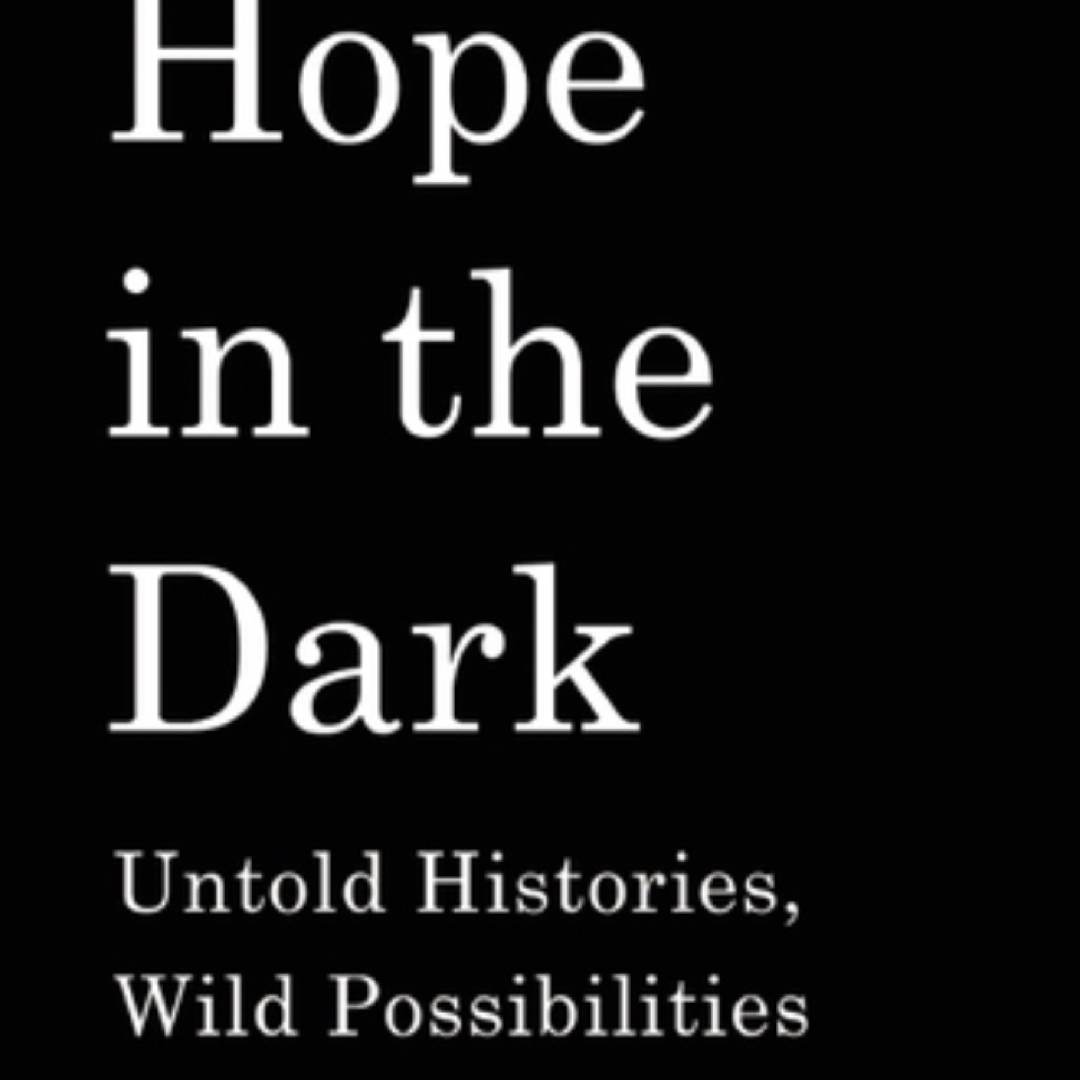
While I enjoyed this collection originally published in 2005 (when we thought Dubya was rock bottom), reading it in the context of the dumpster fire we have now makes it seem almost quaint.
Still, it‘s a good reminder that change is a winding road and you never know what will be waiting around the next bend. Celebrate incremental changes, be grateful for moments of joy, and cultivate hope that our actions can make the world a better place.
“Joy doesn‘t betray but sustains activism. And when you face a politics that aspires to make you fearful, alienated, and isolated, joy is a fine initial act of insurrection.”
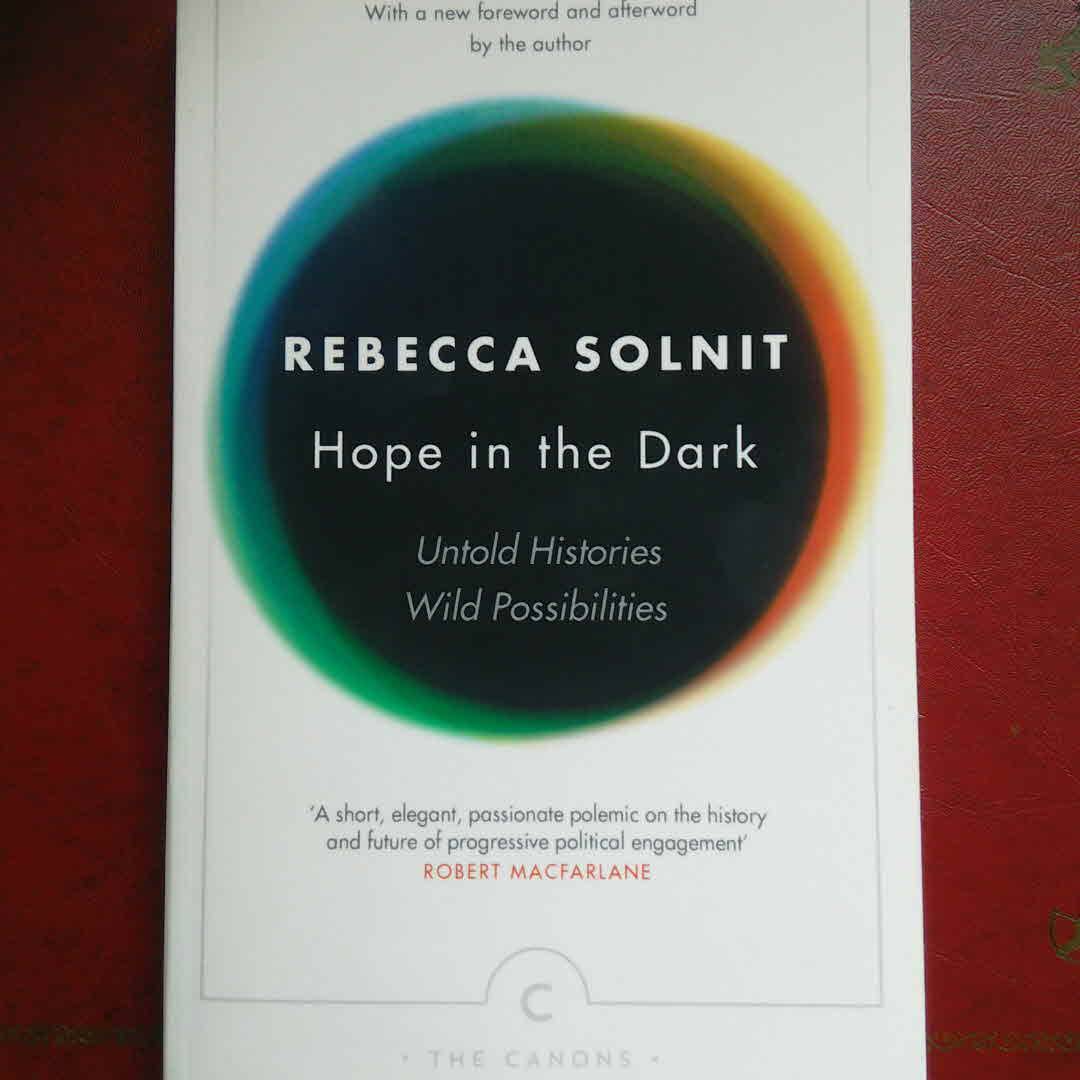
A 2016 update of a book published in 2004, there's no escaping the fact that at times it did come across as dated. I kept wanting to object, "But now we have Trump and Brexit!". However, it really did leave me feeling more hopeful. I think my most important take-away from it is the reminder that it is always too soon to calculate the reach of our actions. I'll try to remember that next time I get stuck in the "what's the f*ckng point?" mud-wallow.
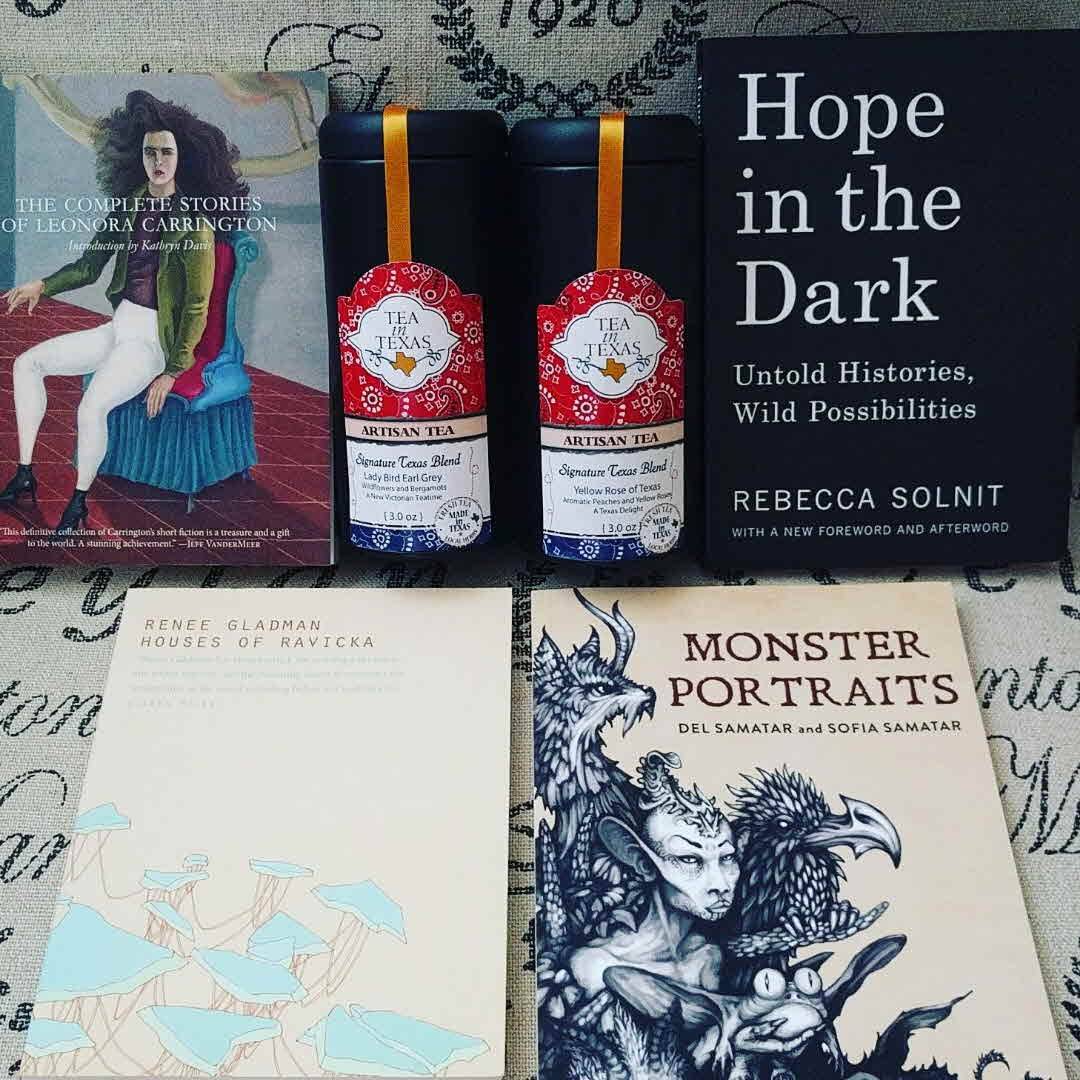
Look at what I bought today!!! Tea, because well, I'm a tea addict ;) But also these 4 promising books, bought at my local independent bookstore!!! Now, I just wish I didn't have a shit ton of work, and that I could read instead :(
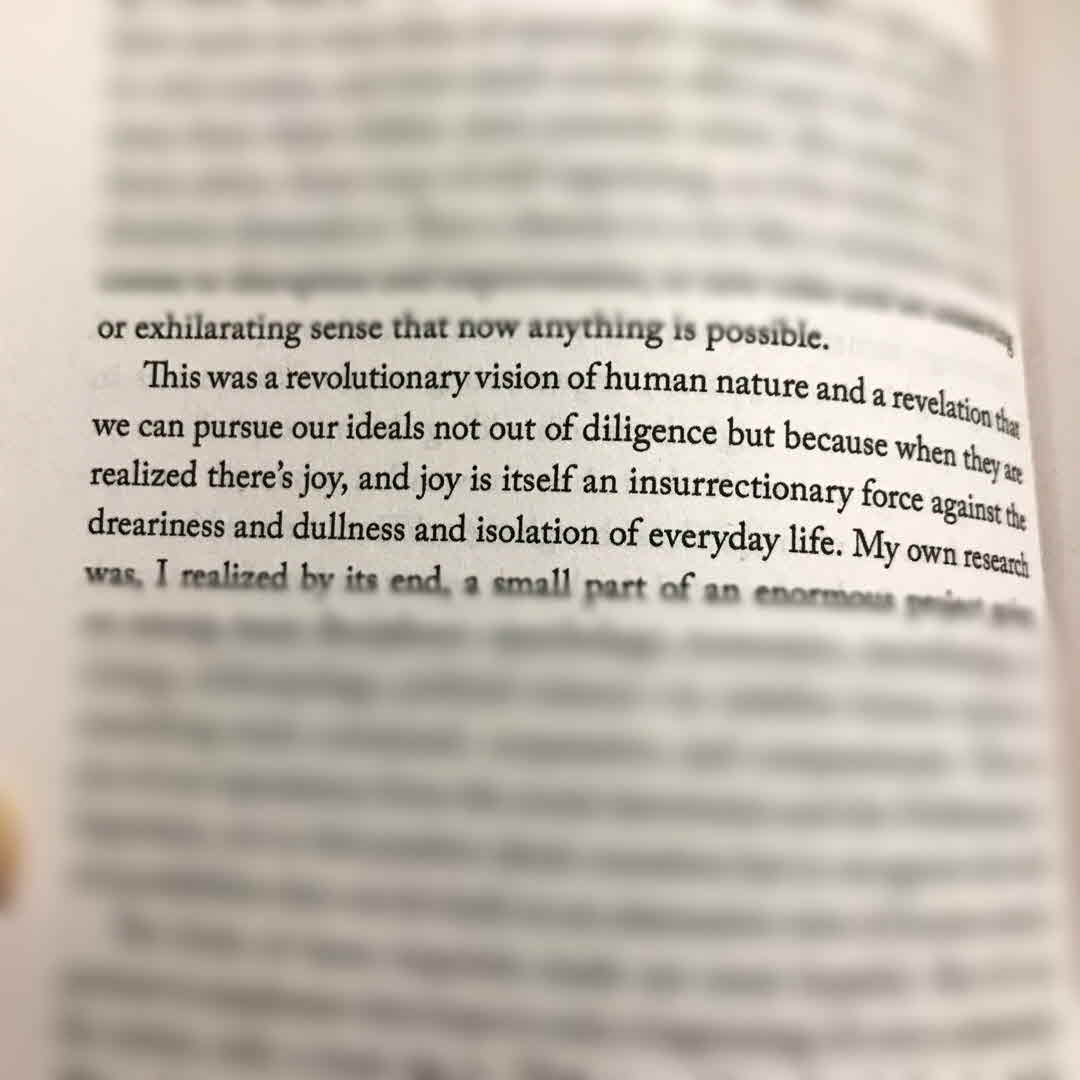
I‘m not even out of the foreword yet! I think I‘m going to like this book!! ❤️❤️❤️
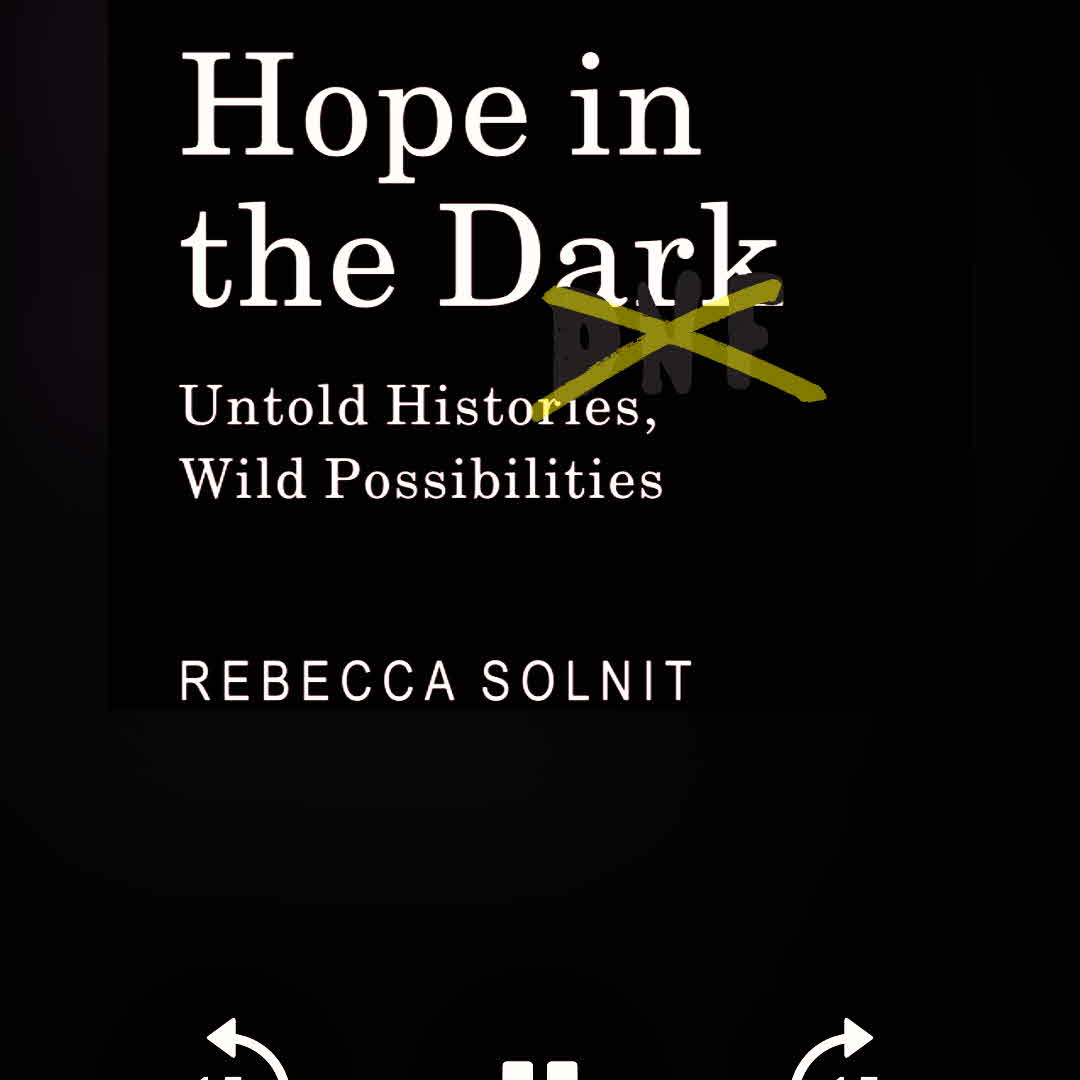
They say this narrator is human, but she sounds like a cyborg to me. This narration is AWFUL and totally distracting from what is probably a decent book. I can't do it. On audio.
Deeply important read, for me, in this completely bonkers political landscape. Hope is an act of resistance.
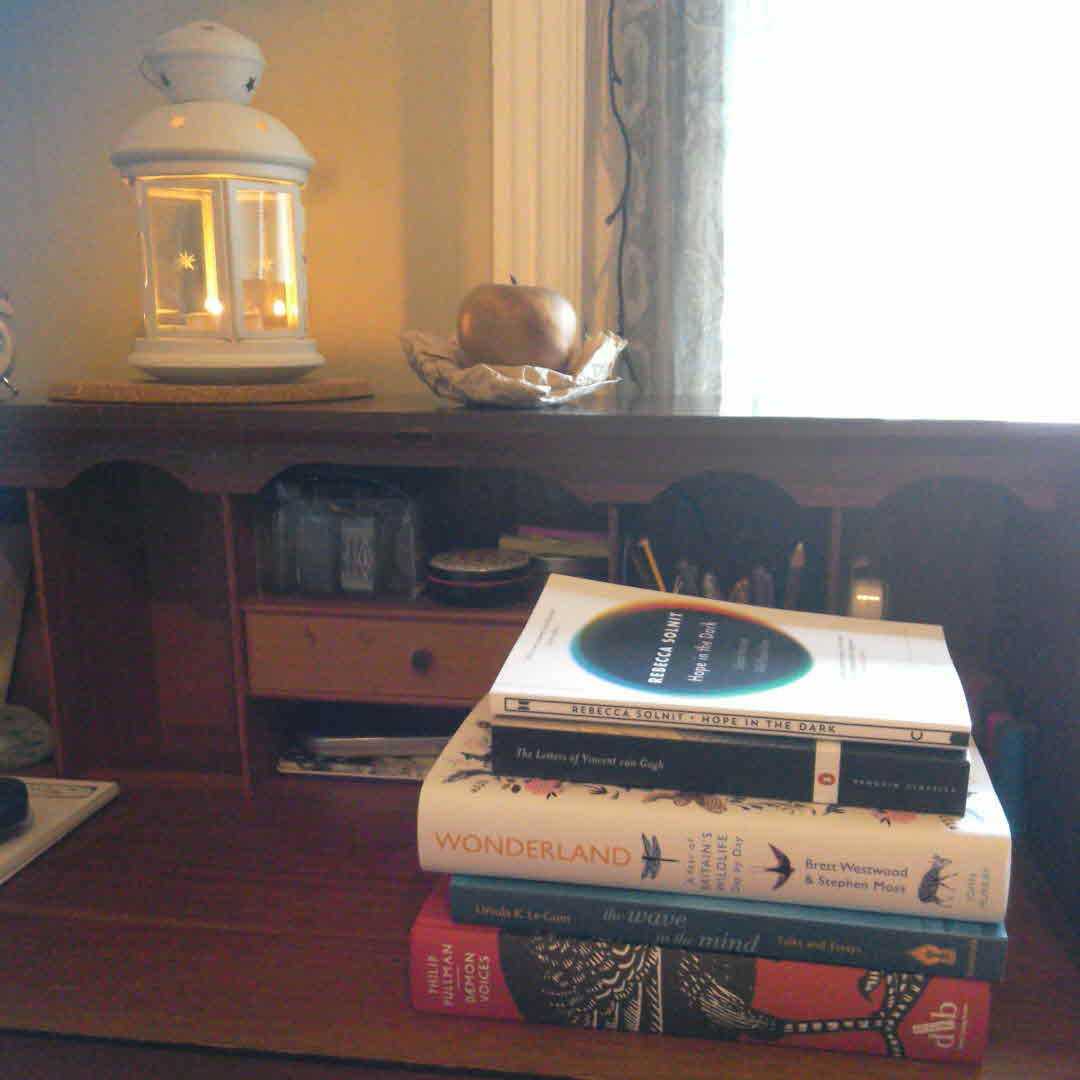
Thank you to everyone who wished me a happy birthday yesterday; it was a good day!
Look what my lovely man gave me 😍! My old desk was falling apart and I'd been hankering after a proper writing bureau for years. He and our daughter also added to my TBR. 📚💕
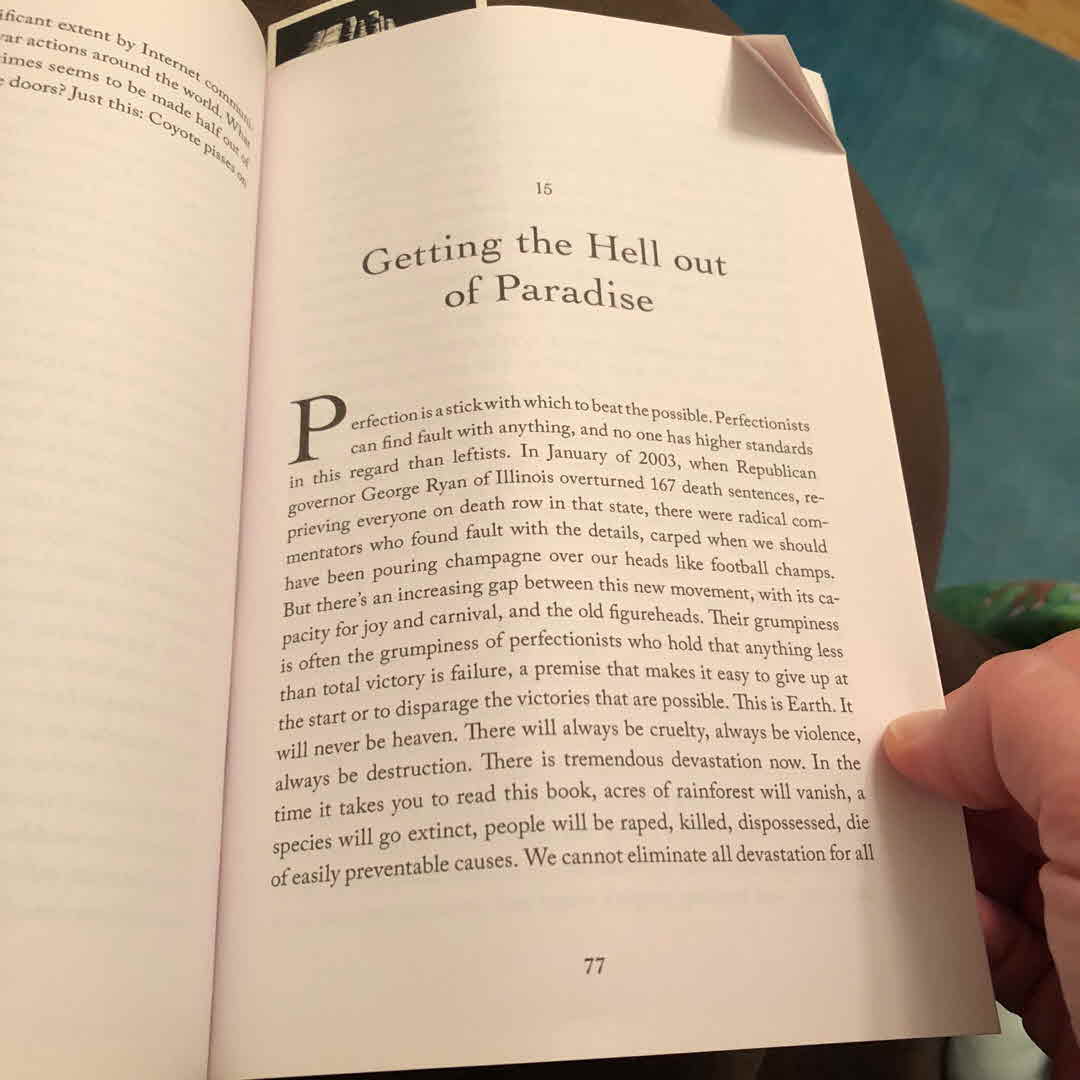
I pretty much want to highlight this entire chapter. All of it.
Seriously, this book is like medicine to my troubled political thoughts.
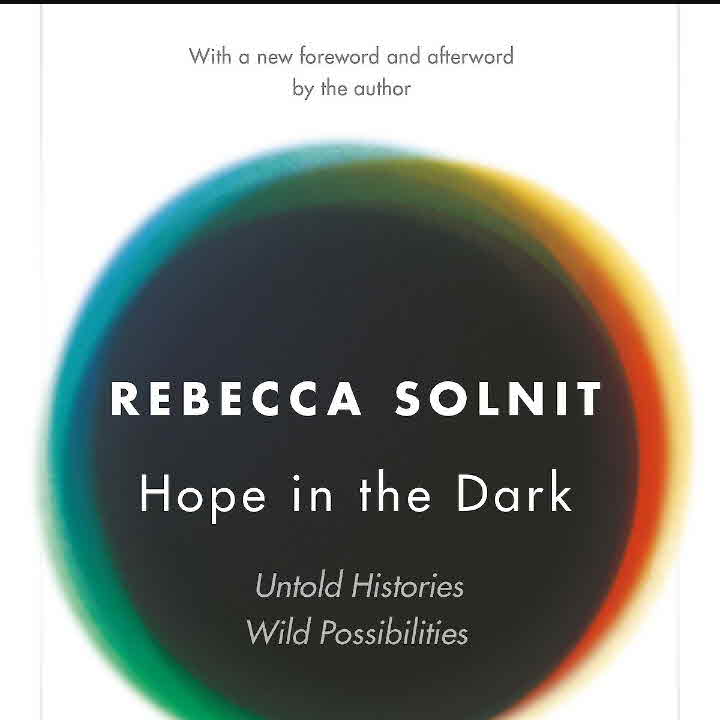
I was set the preface to this as a reading for my course this week and it really resonated with me. Too often we are told not to show or use emotions in politics/political work/decisions. Solint brilliant highlights the use of anger and hope as motivating change. Excited to read the rest #hopeinthedark #emotion #hope #anger #politics
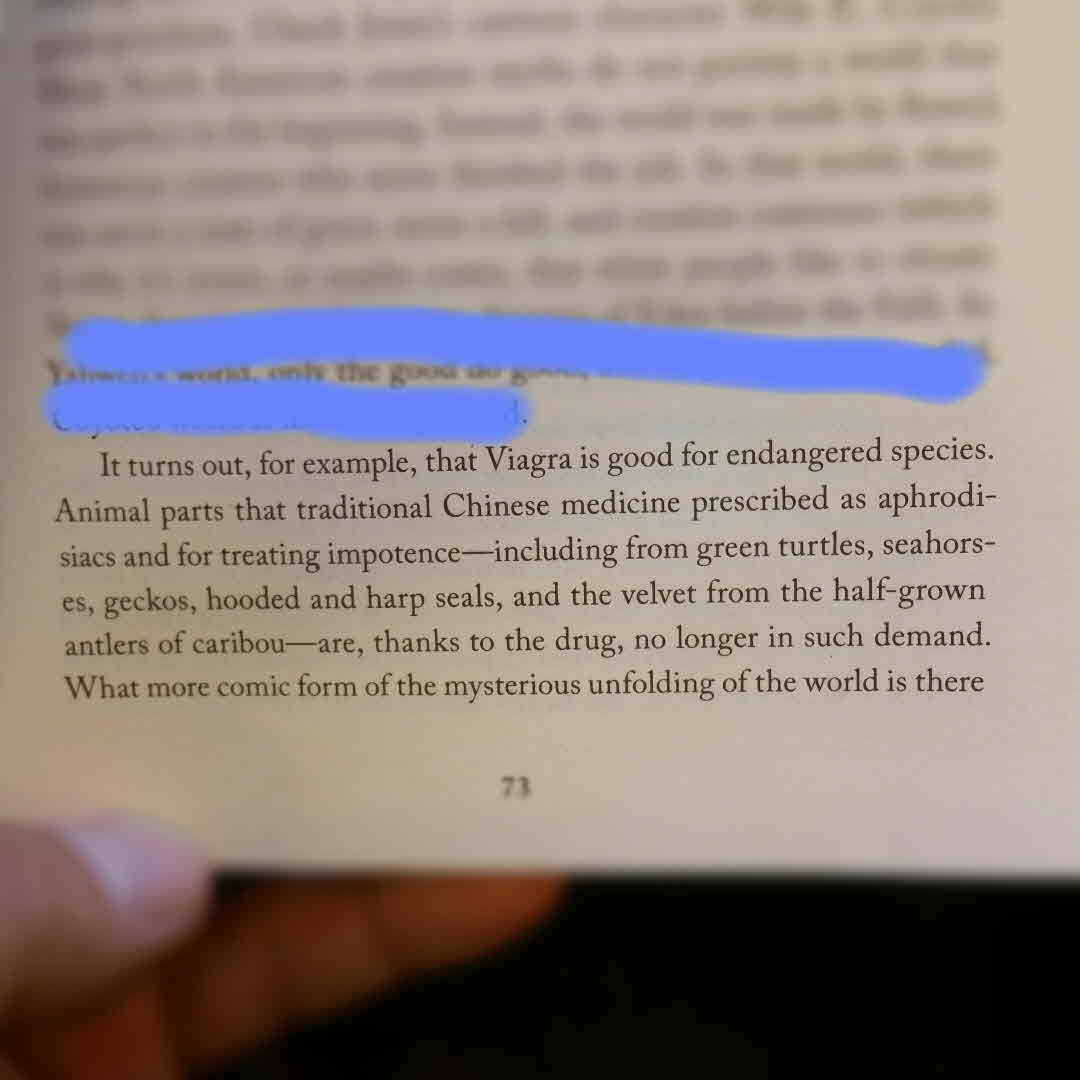
...than this, which suggests that Viagra‘s ultimate purpose may be the survival of animals at the edges of the earth?
My thoughts: What Solnit doesn't realize is that Viagra is tested on dogs, who are later murdered.
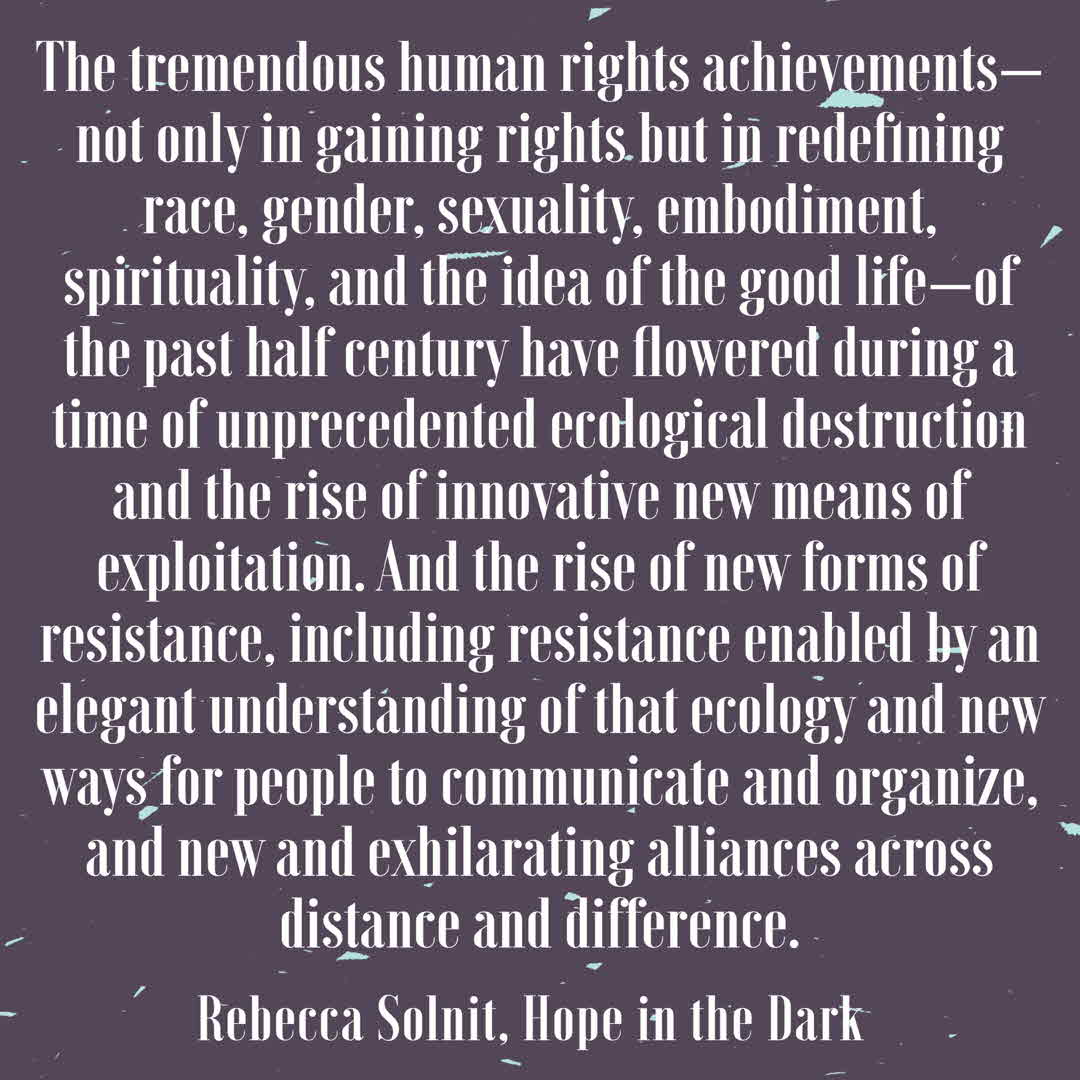
This isn‘t a long book, but it is full of fierce ideas designed to inspire plenty of action. I couldn‘t think of a better source for today‘s #quotsyjan18 prompt. #organize
The naively cynical measure a piece of legislation, a victory, a milestone not against the past or the limits of the possible but against their ideas of perfection.
"We live in capitalism. Its power seems inescapable. So did the divine right of kings. Any human power can be resisted and changed by human beings.”
--Ursula K. LeGuin
On 9/11:
The population of the towers was lower than usual that morning, because it was an election day and many were voting before heading to work; it seems emblematic that so many were spared because they were exercising their democratic powers.